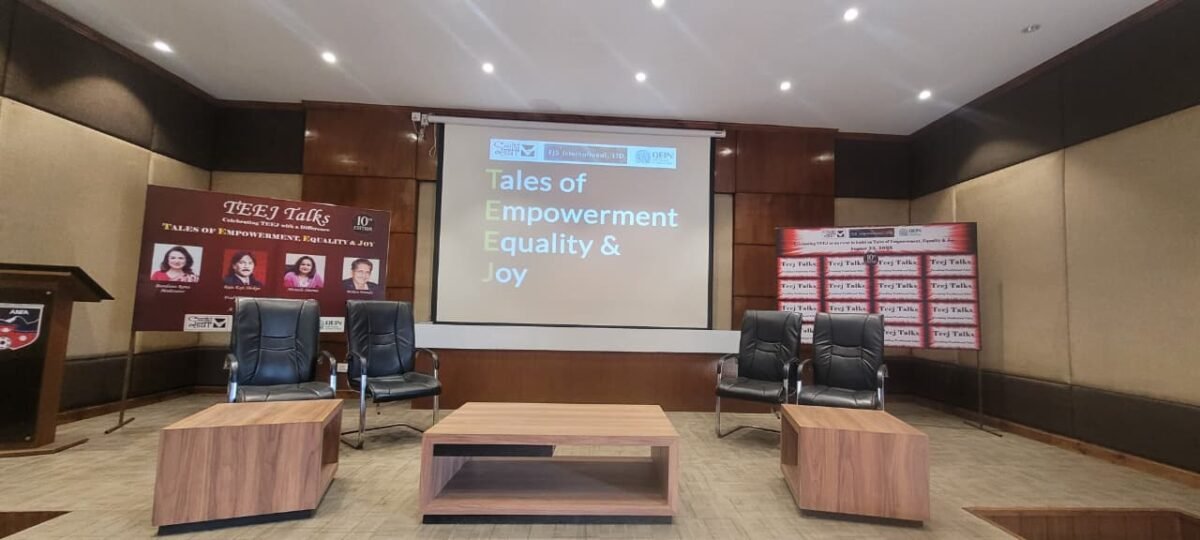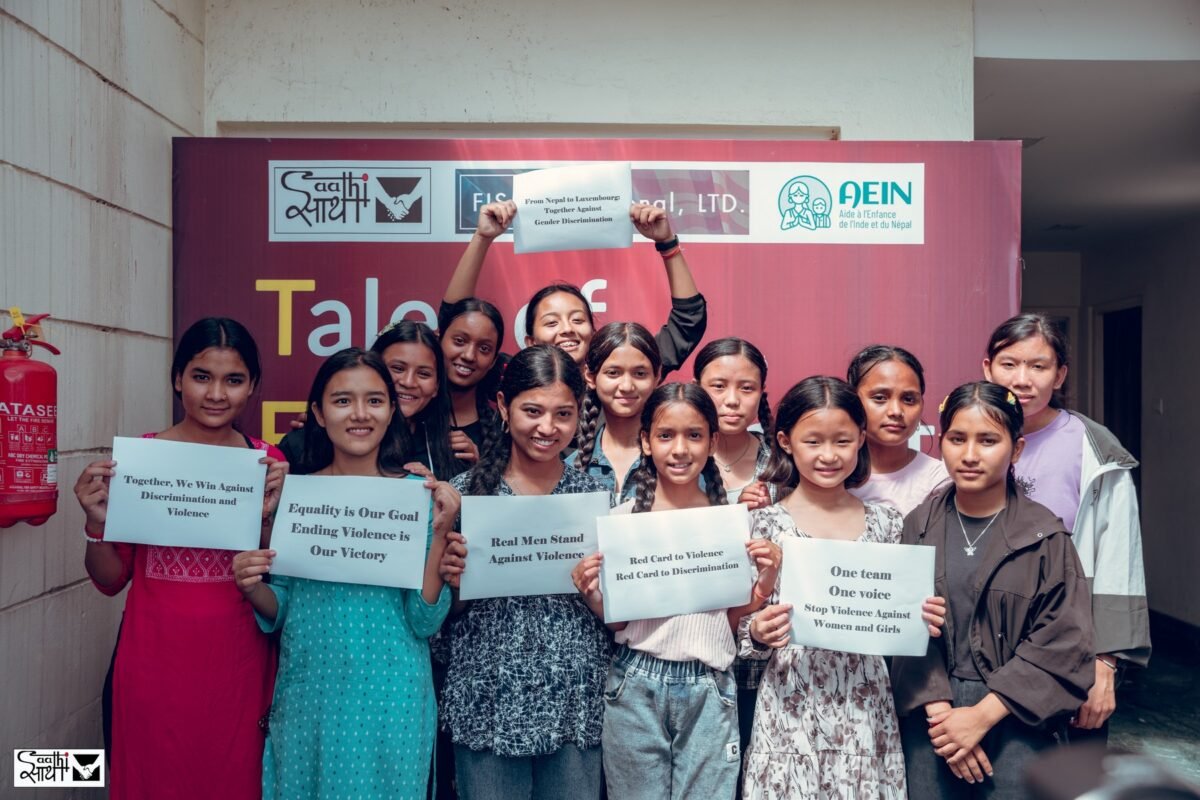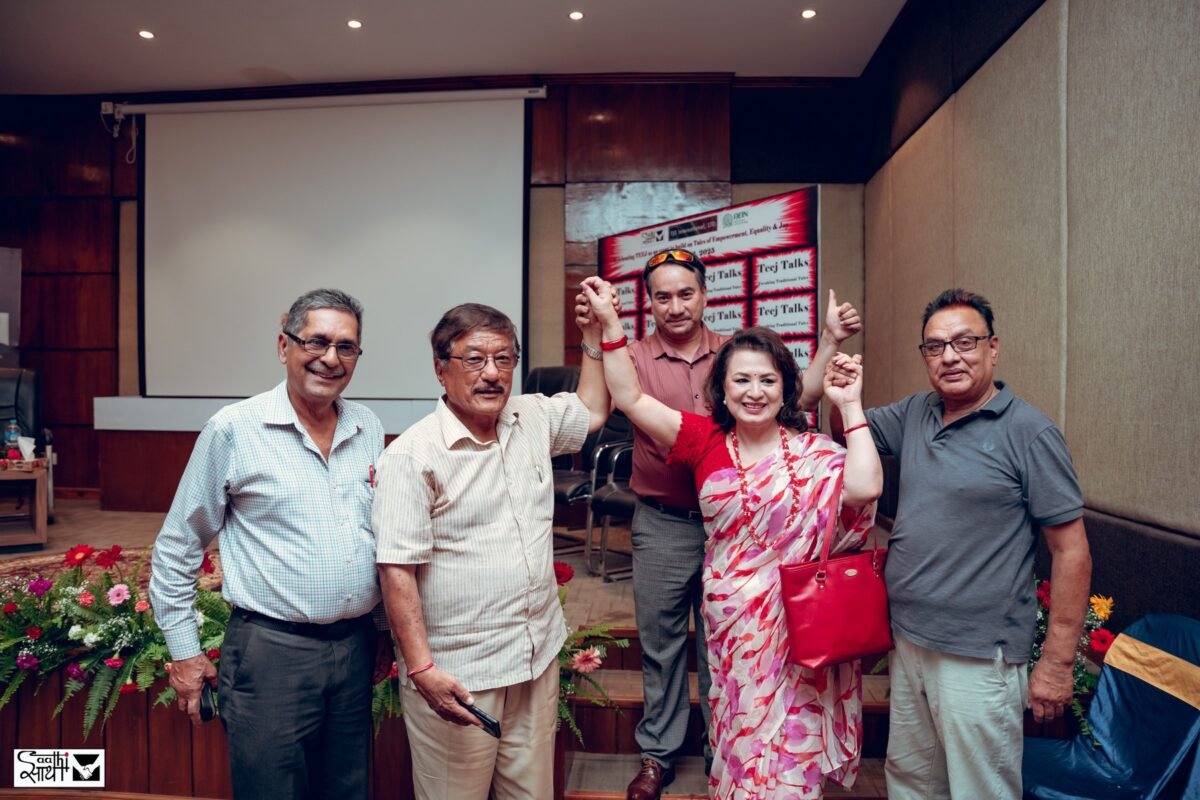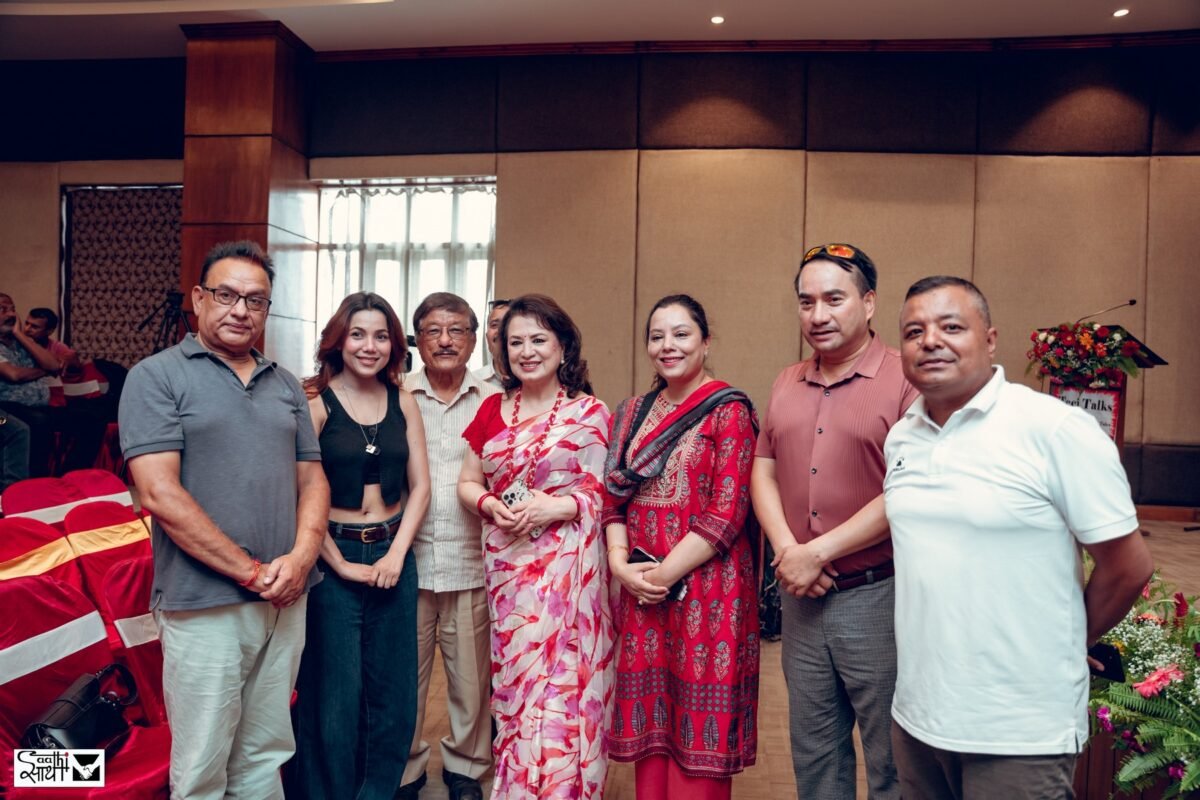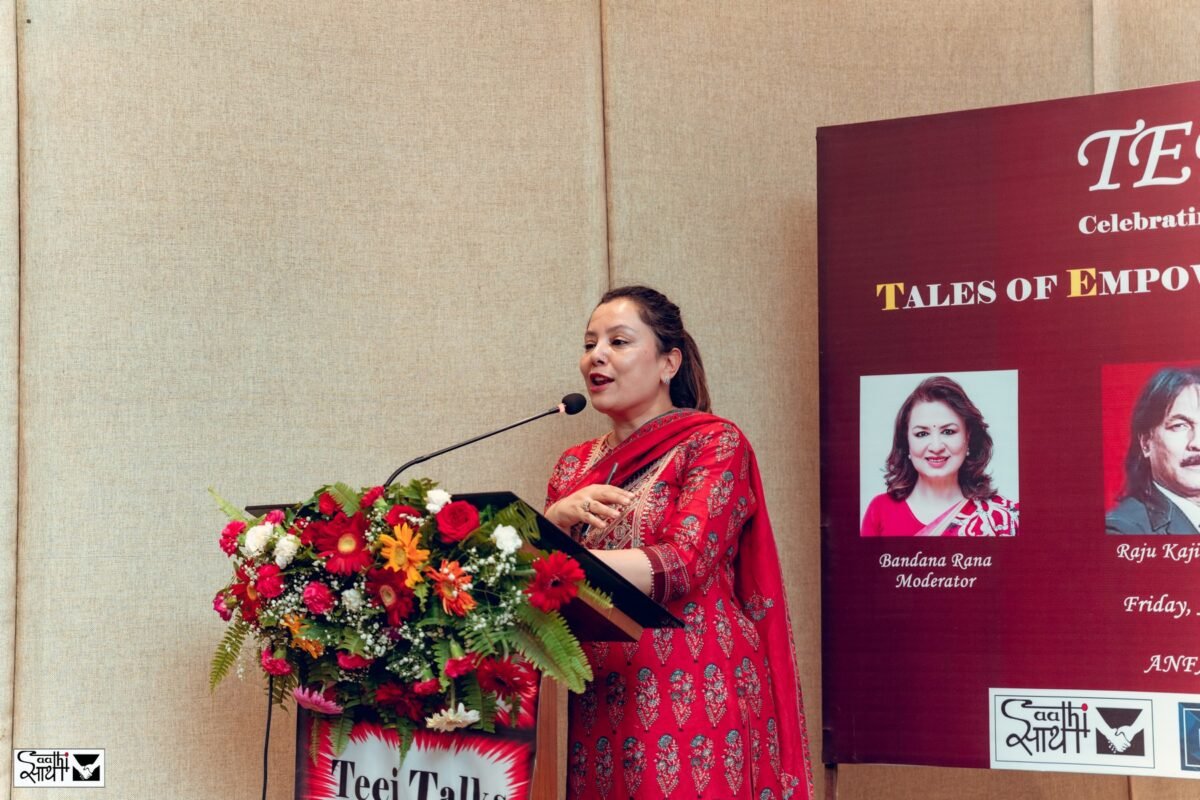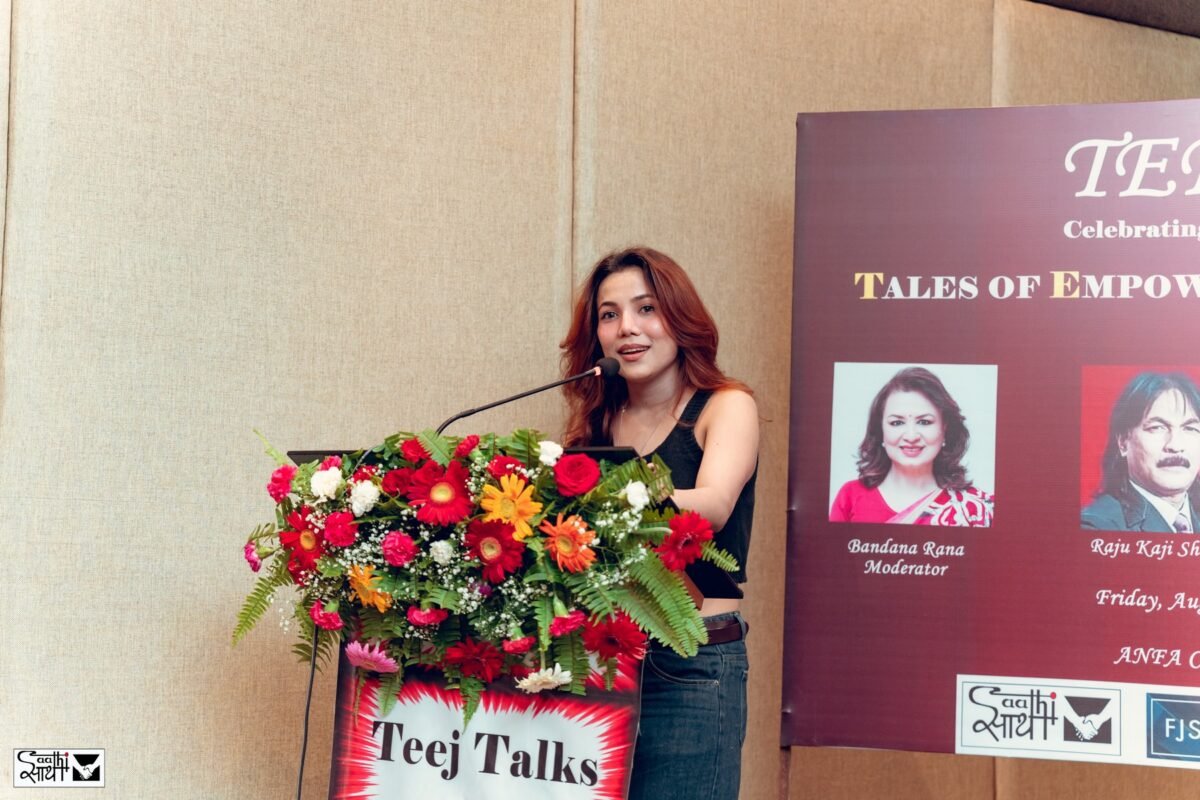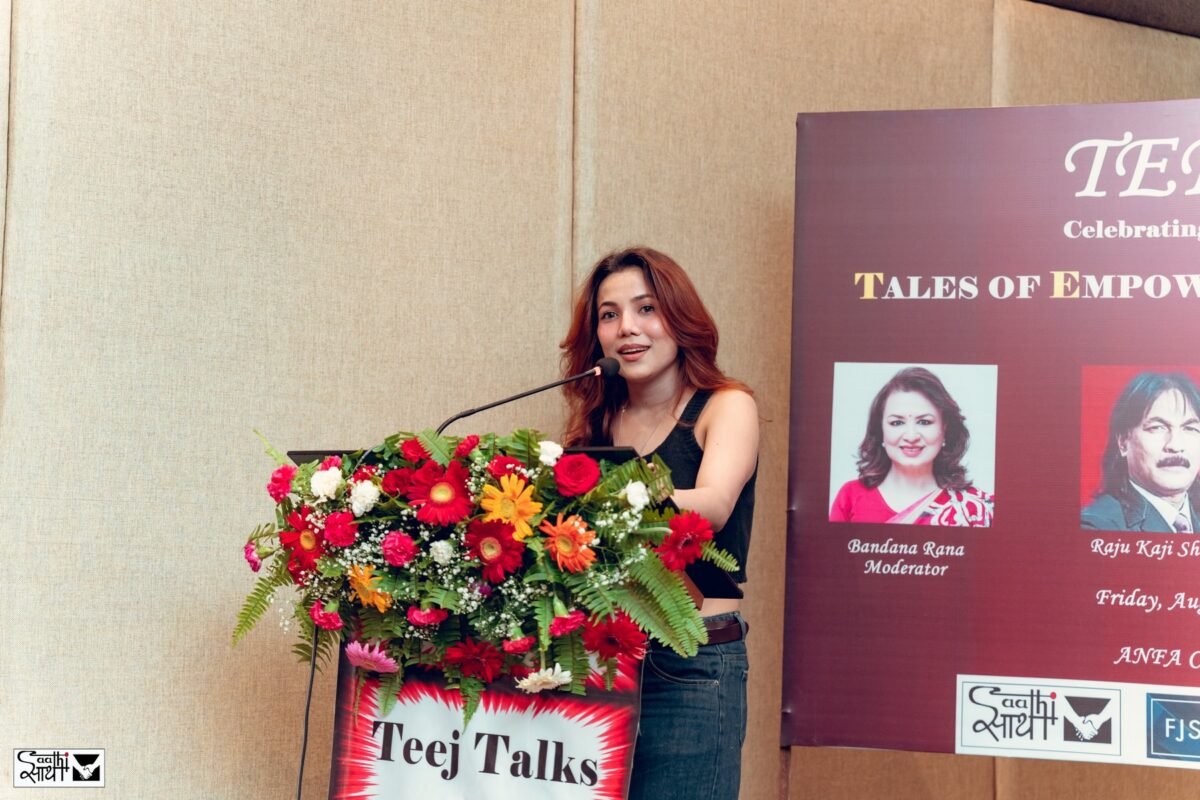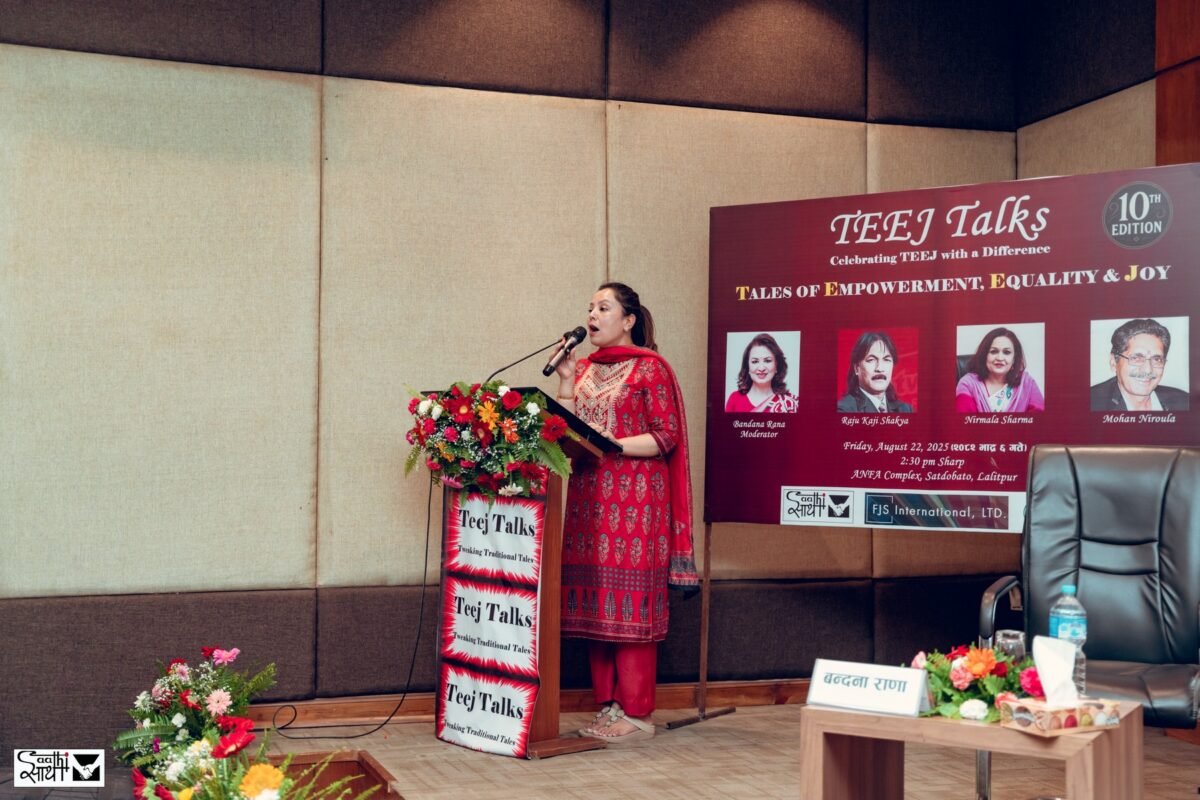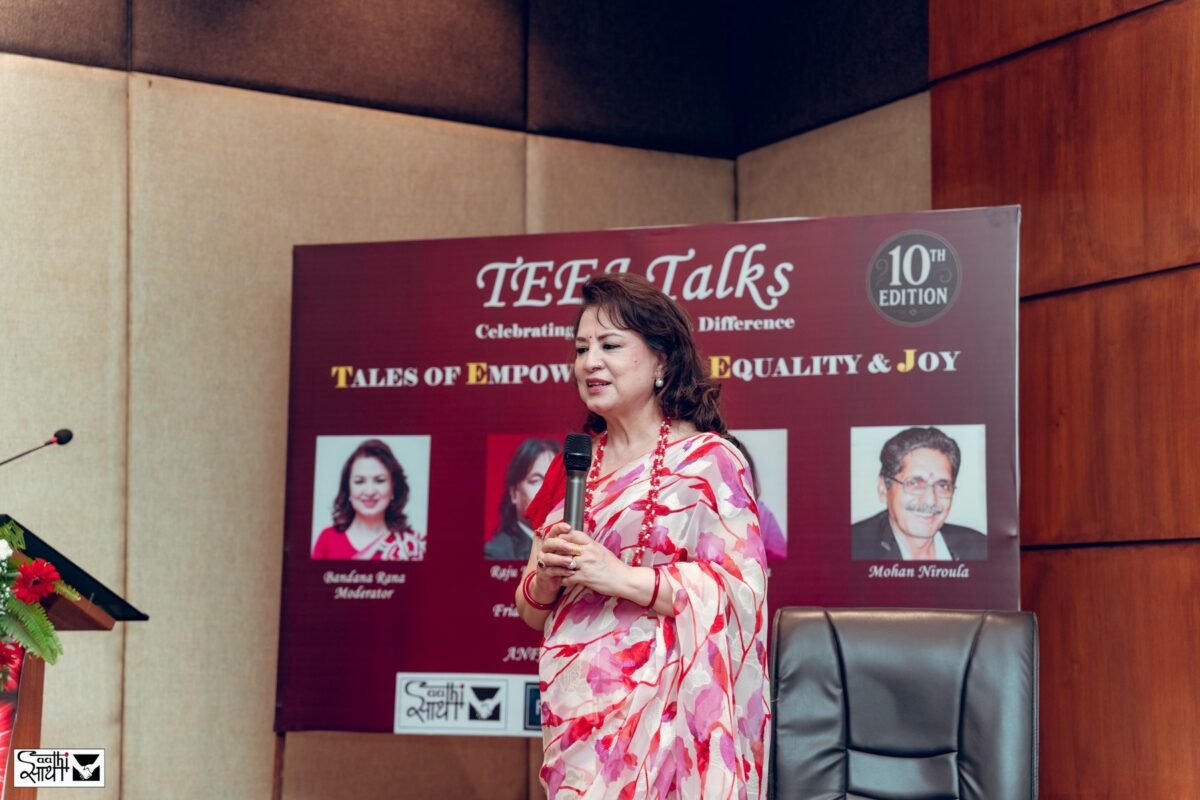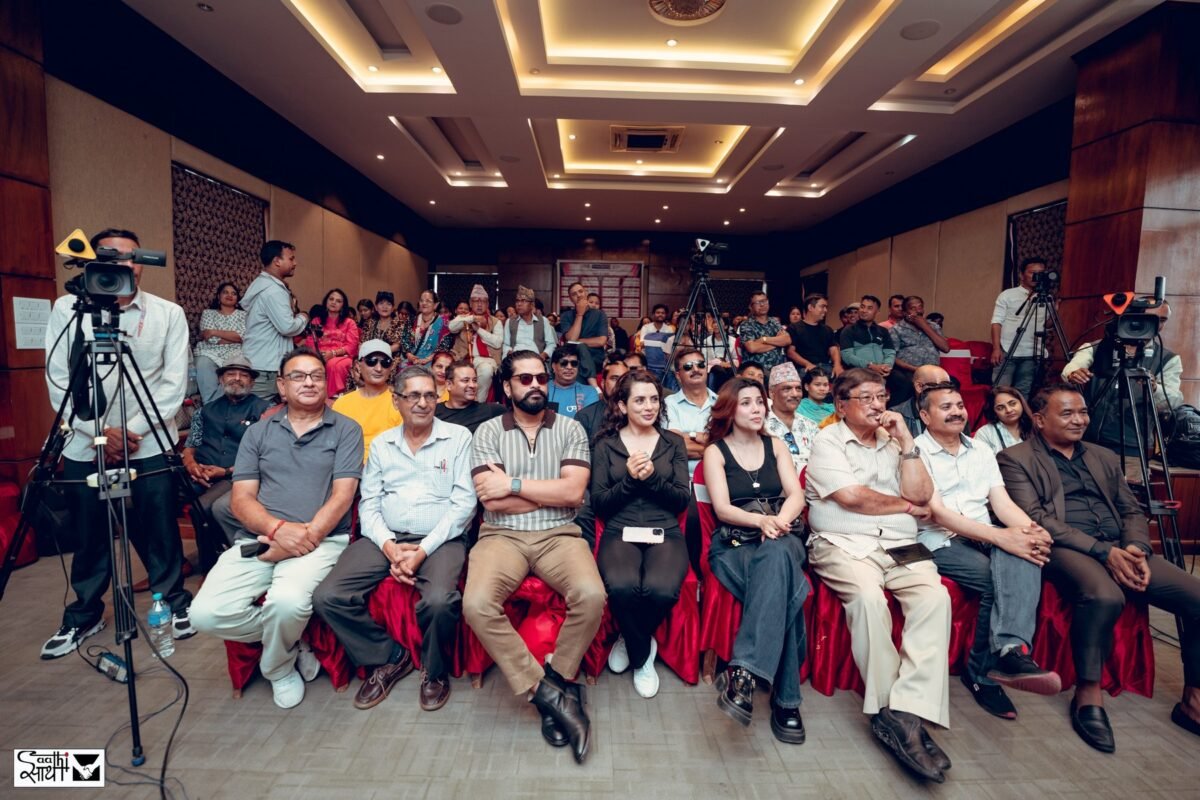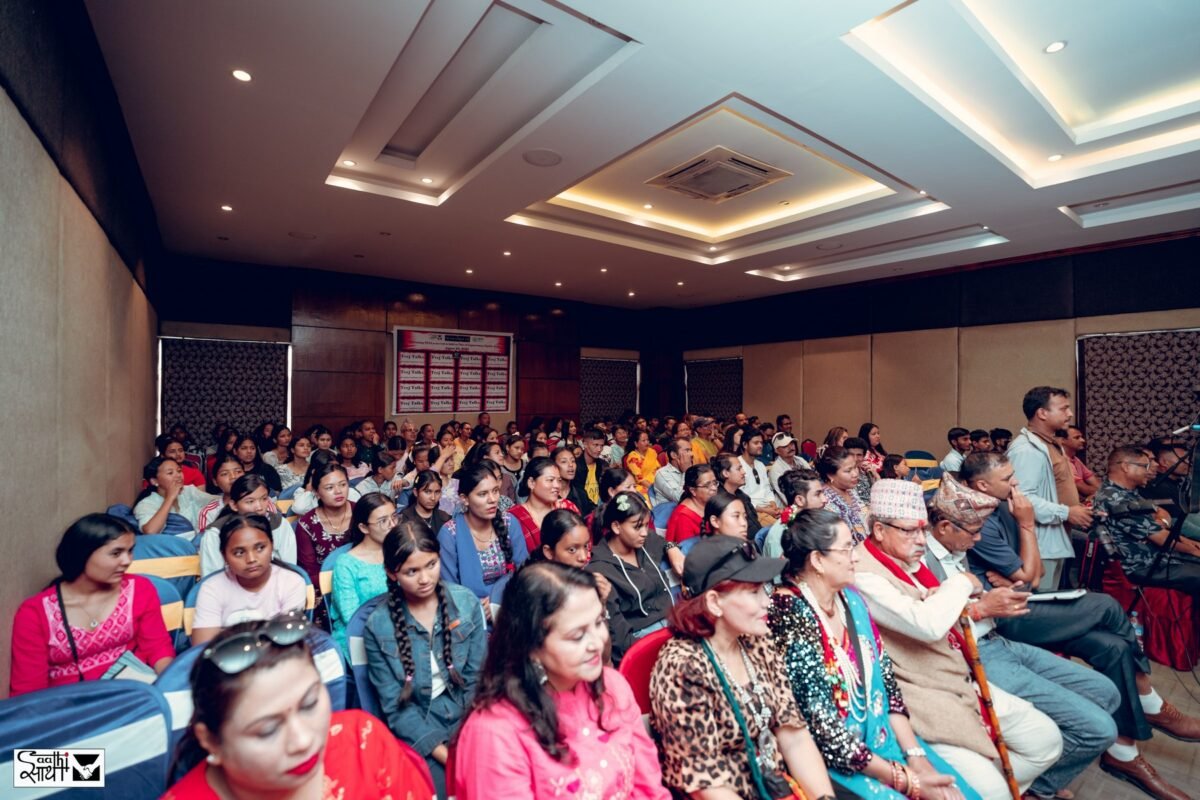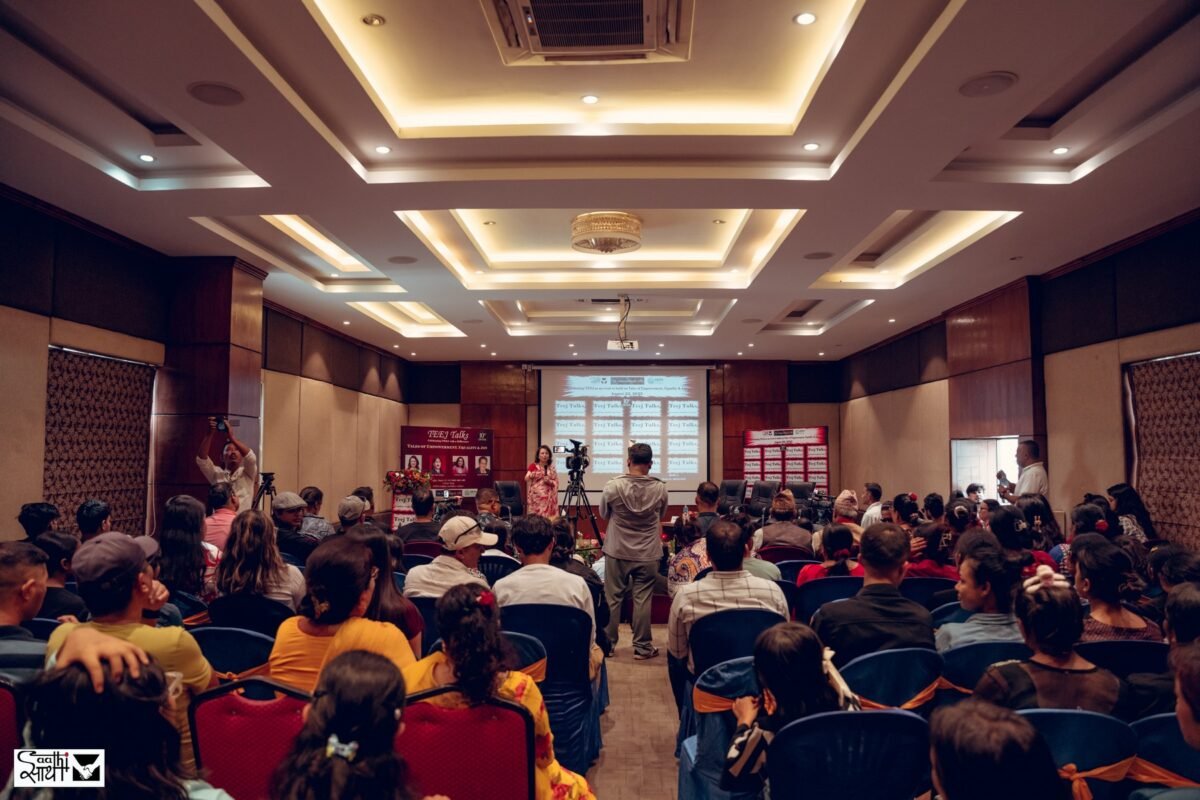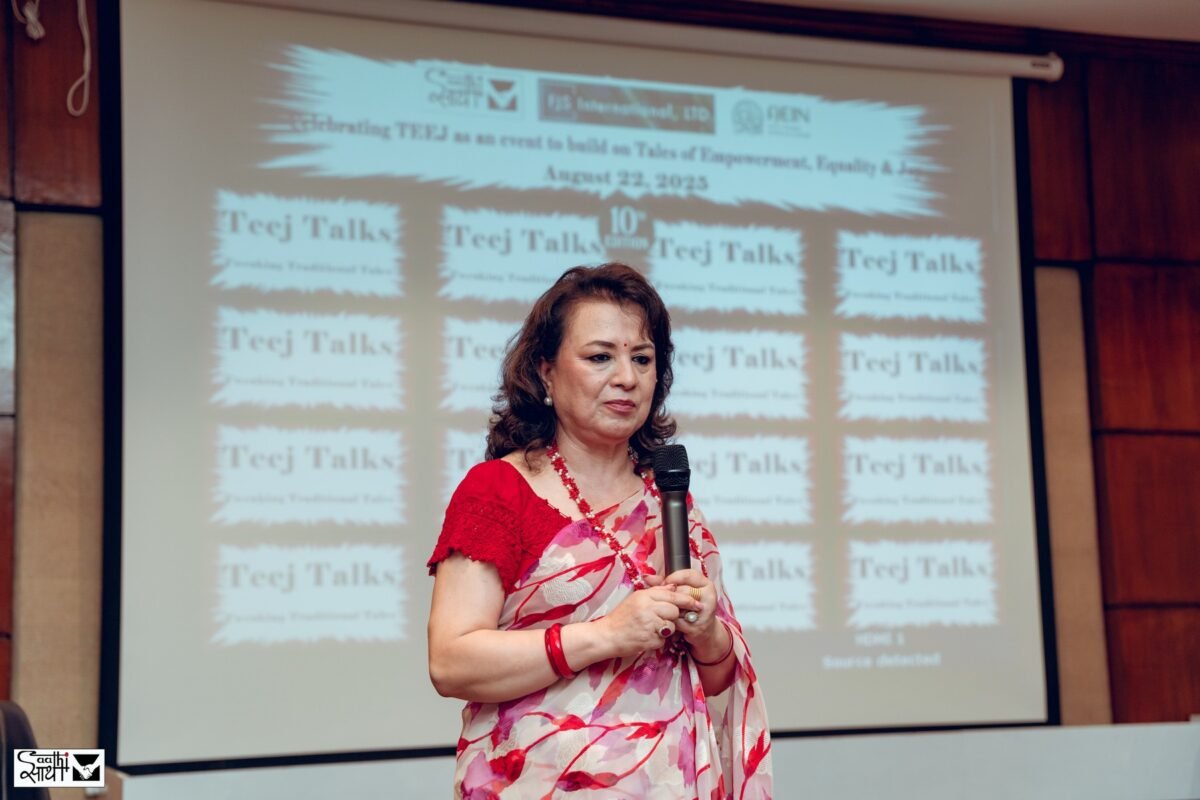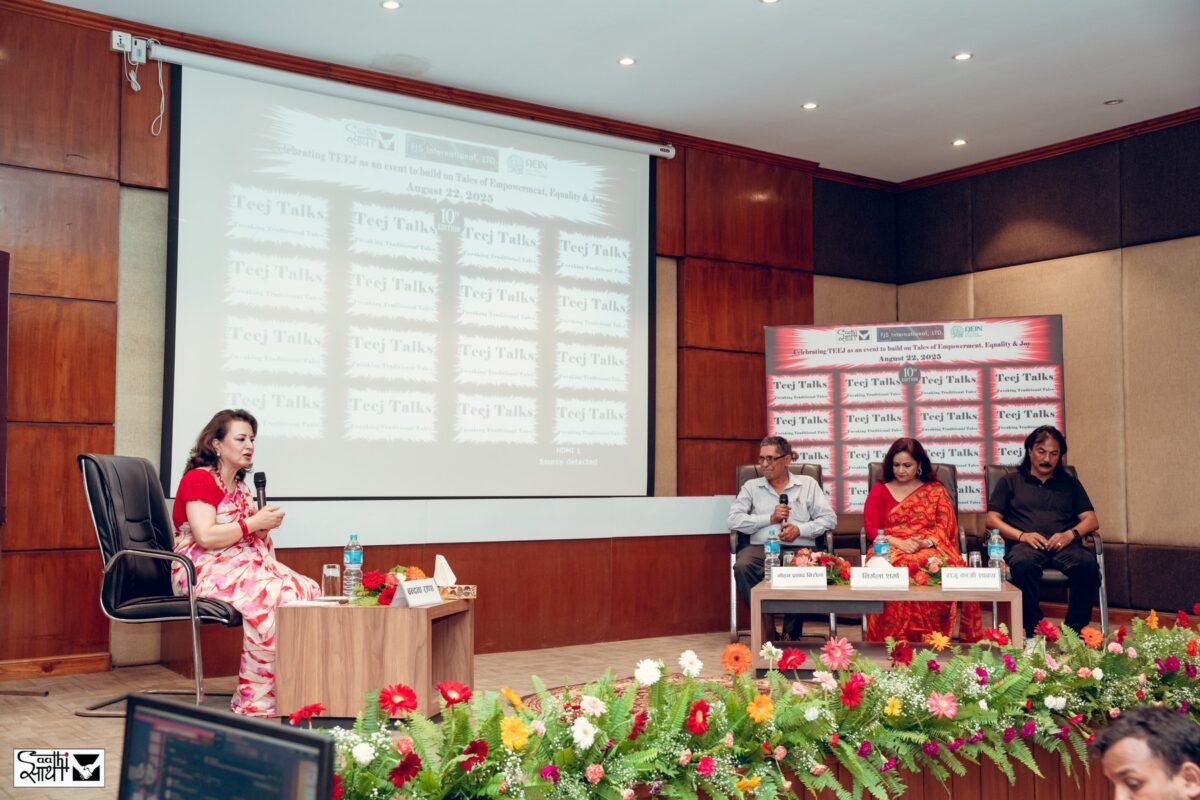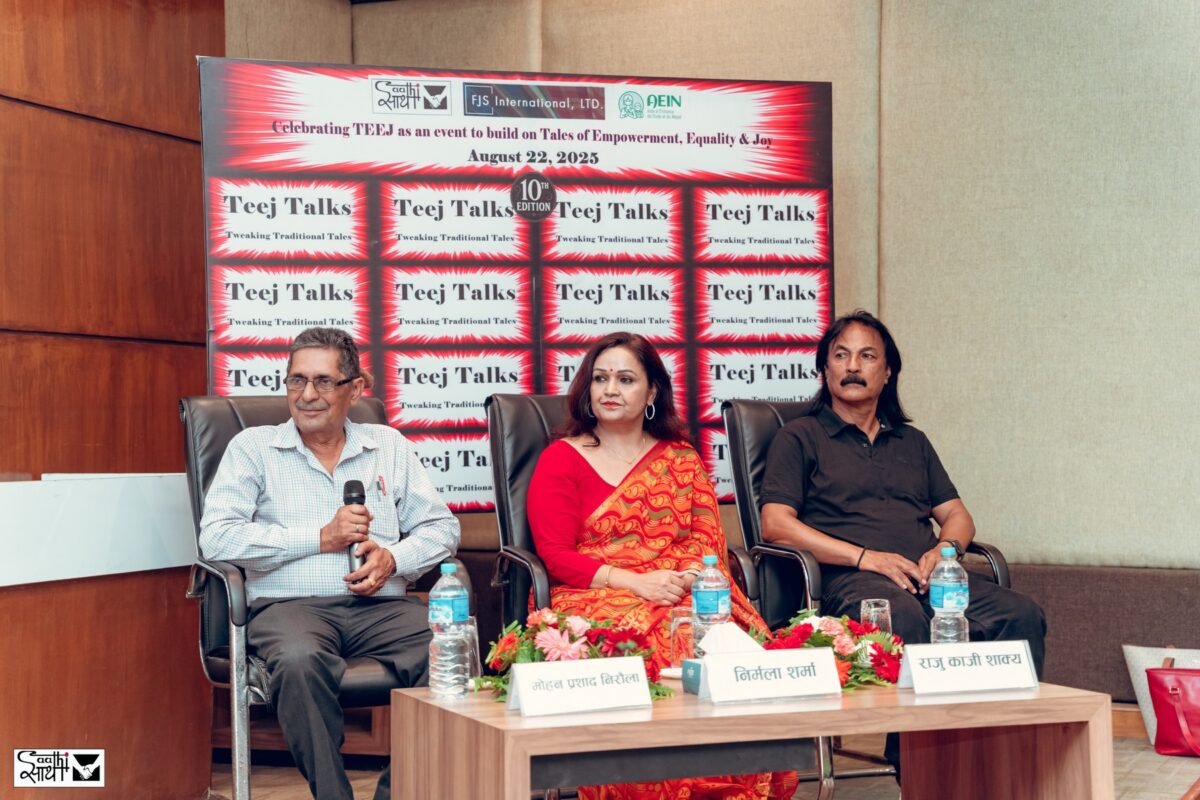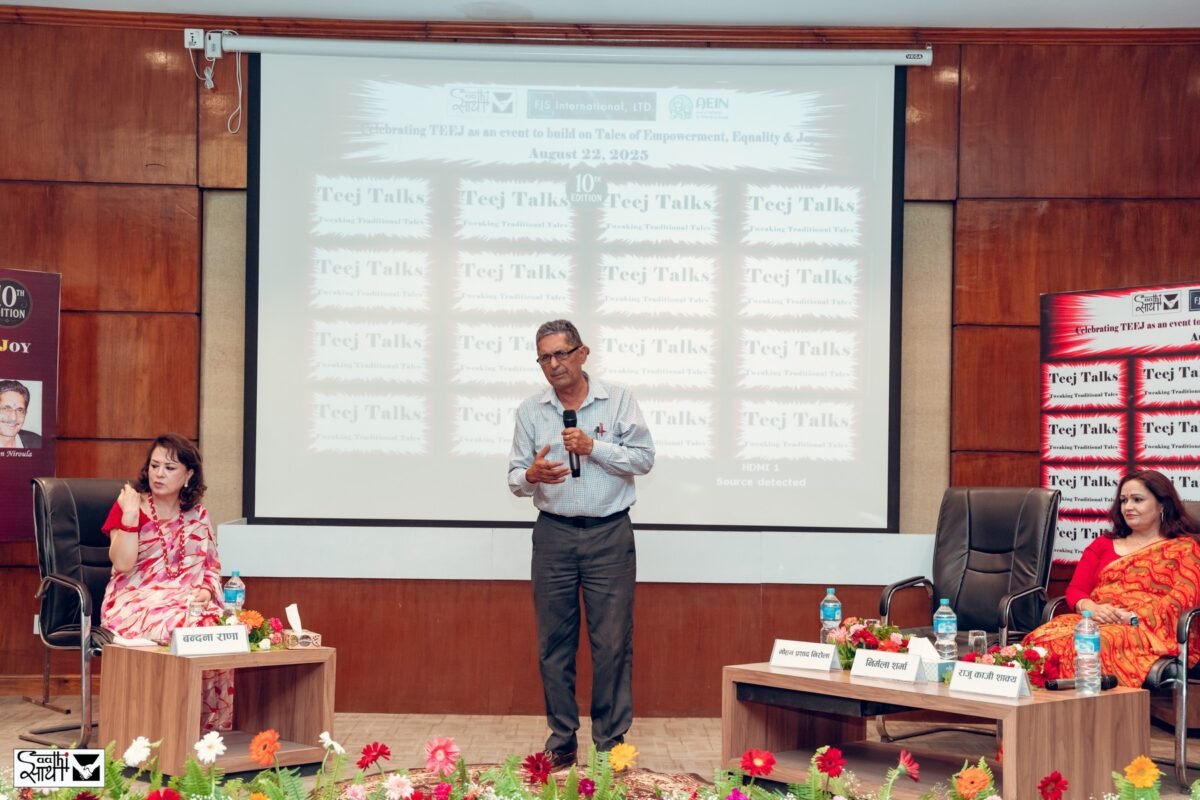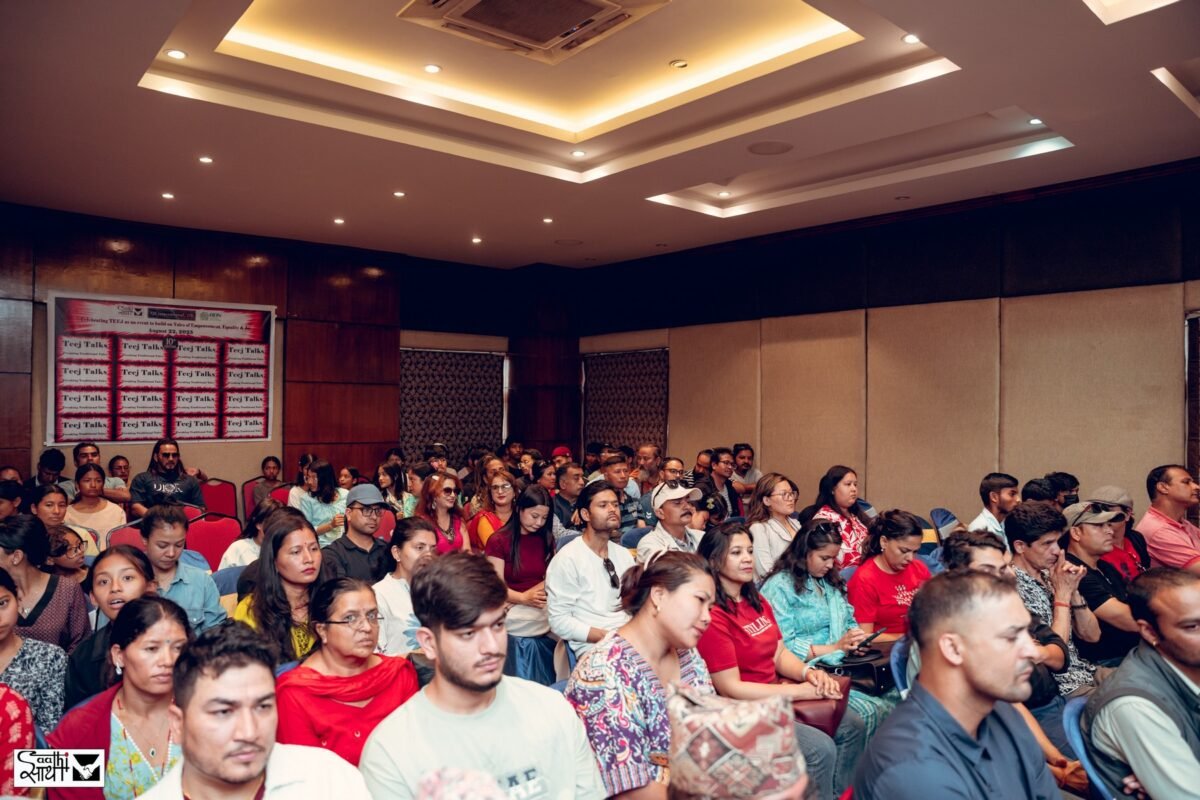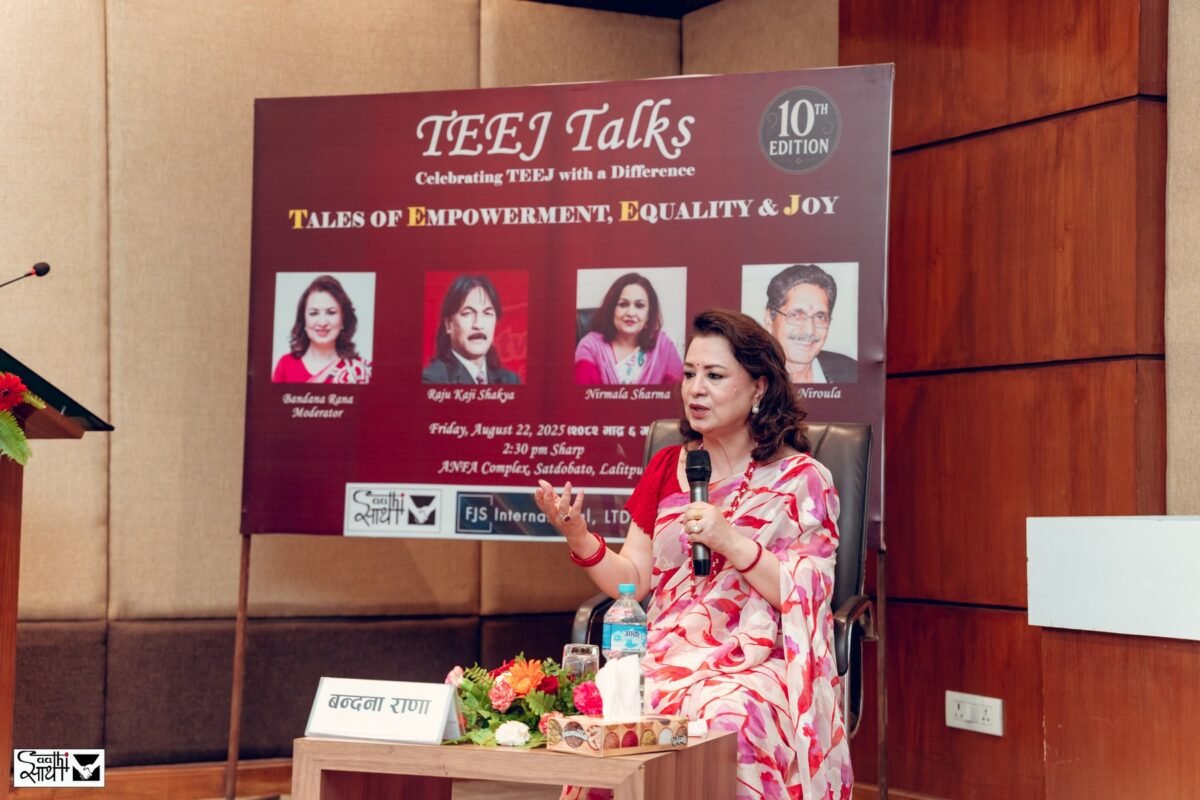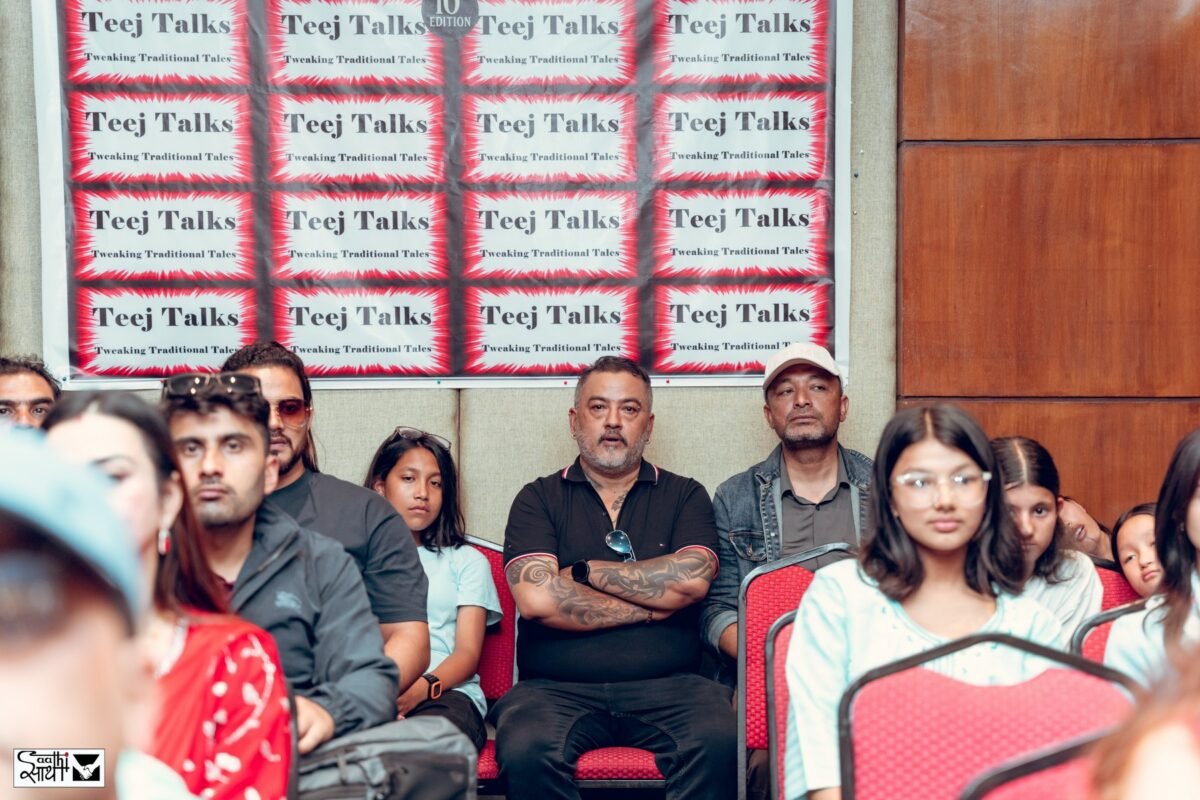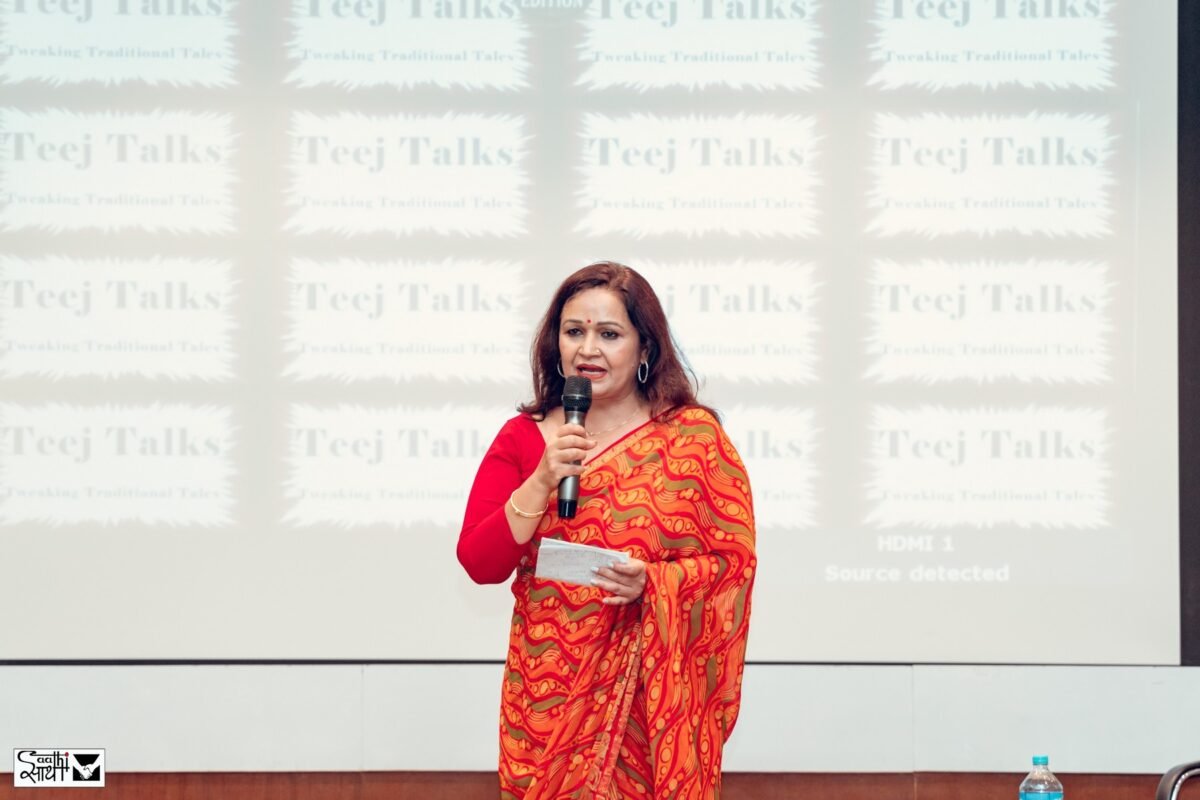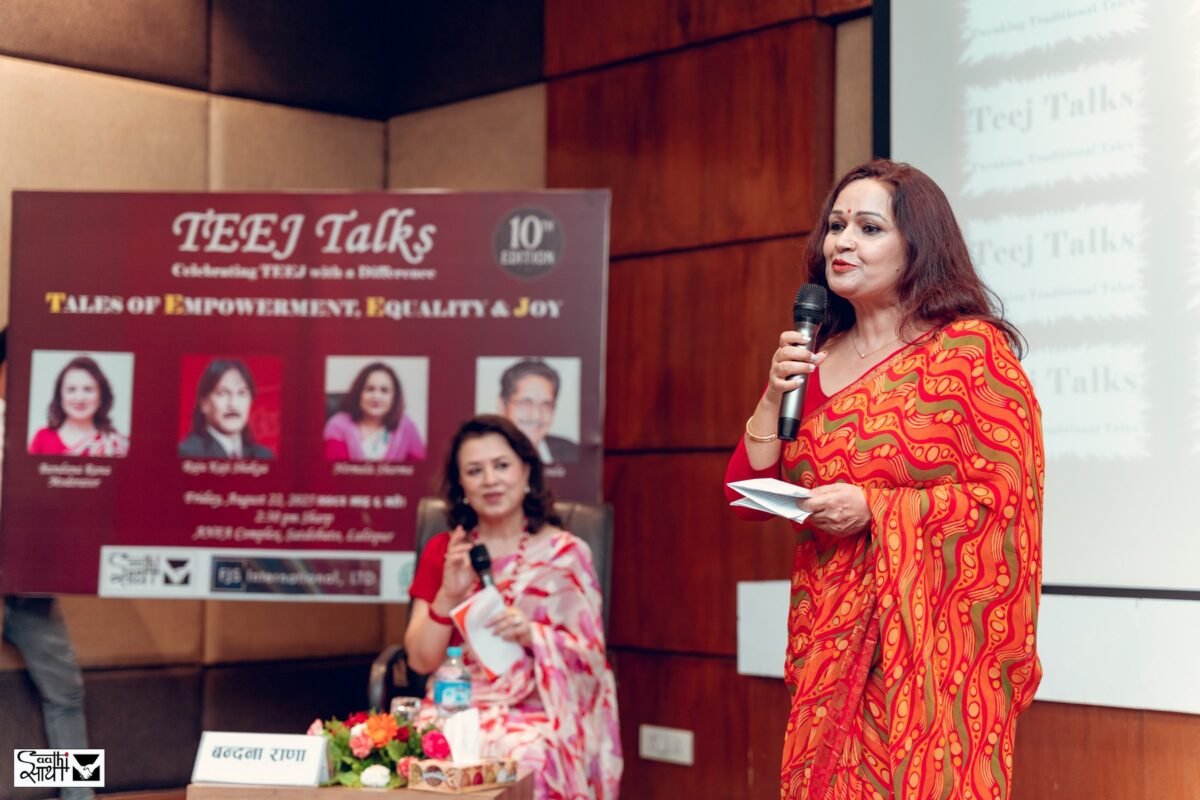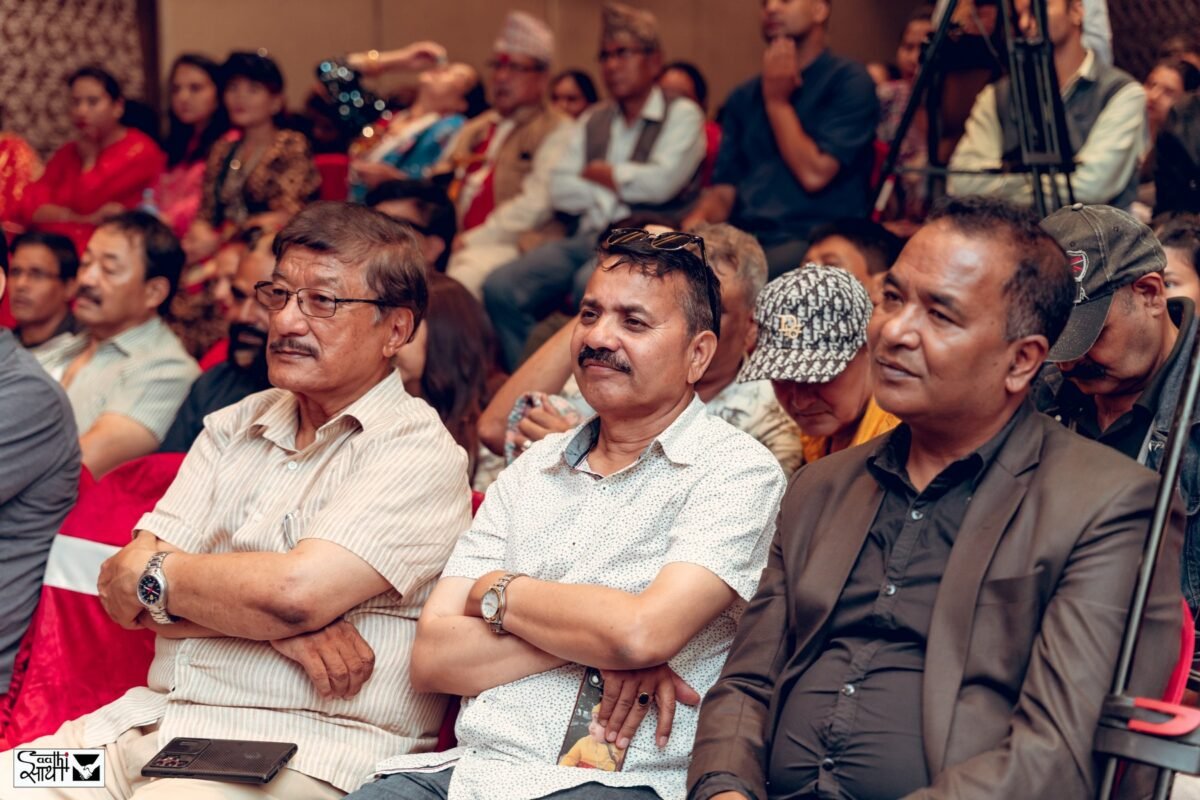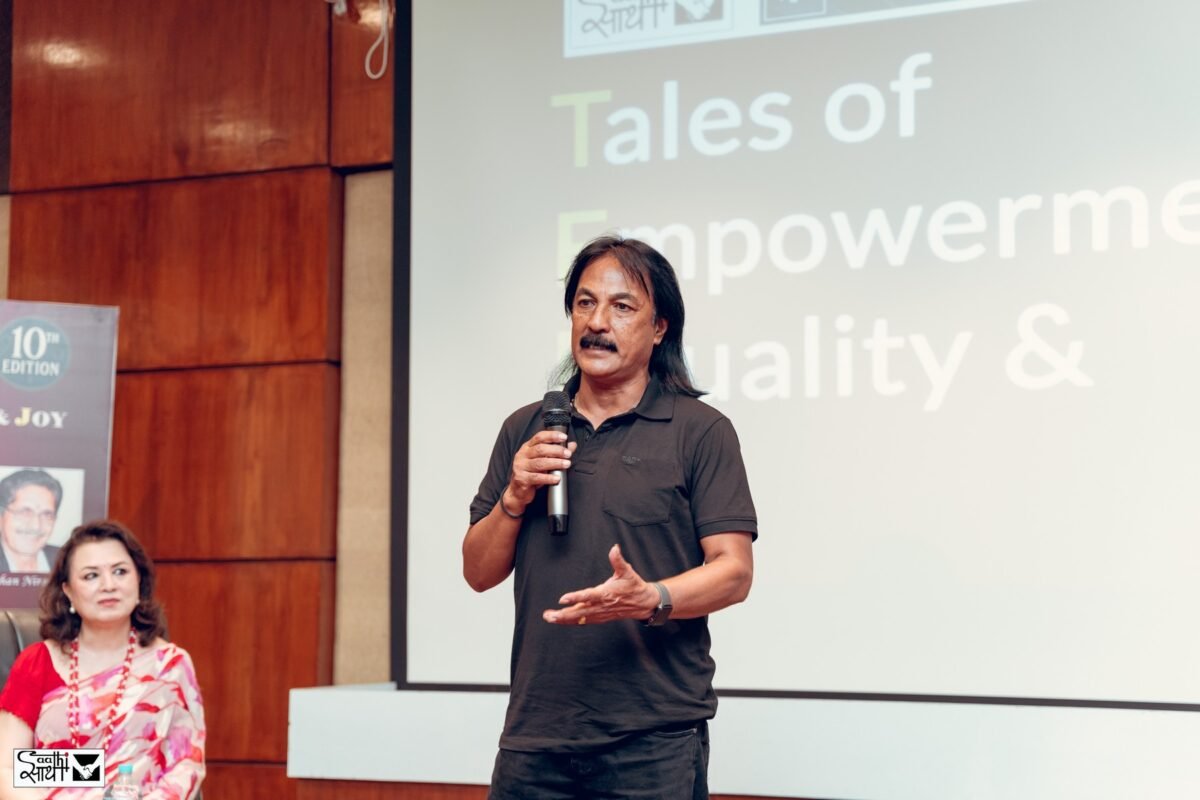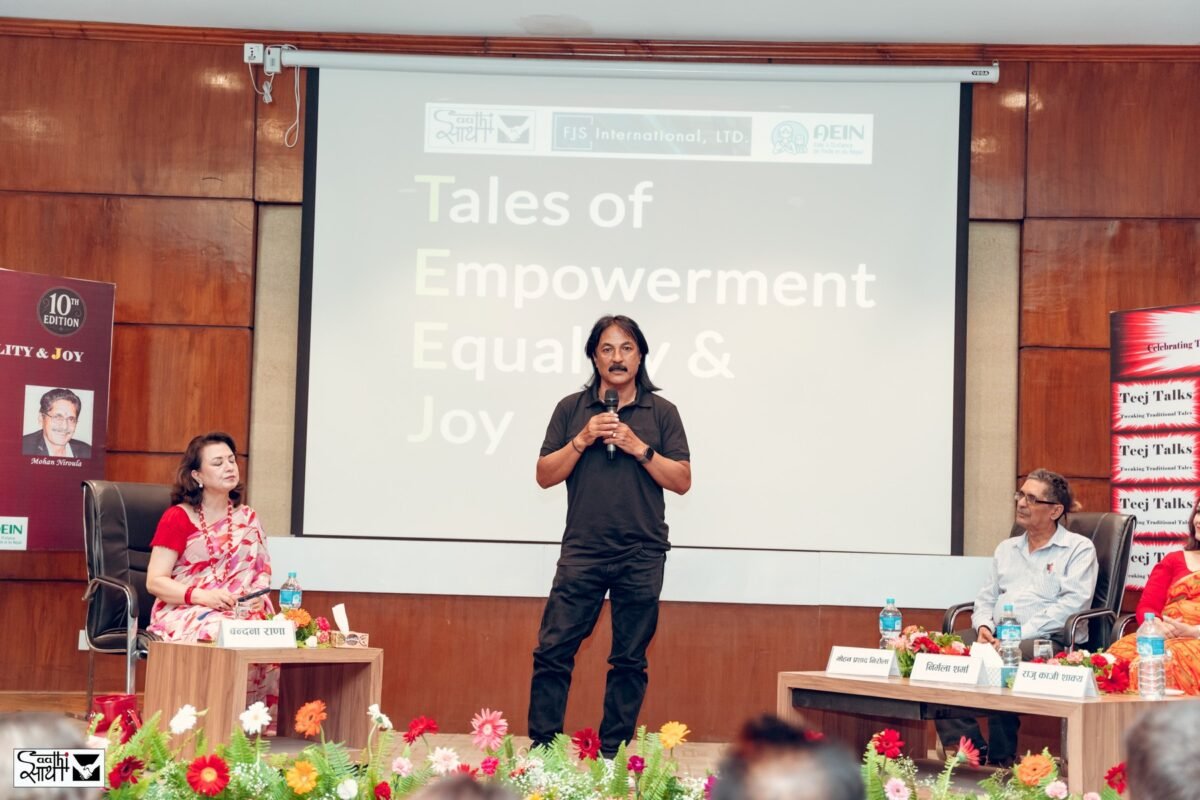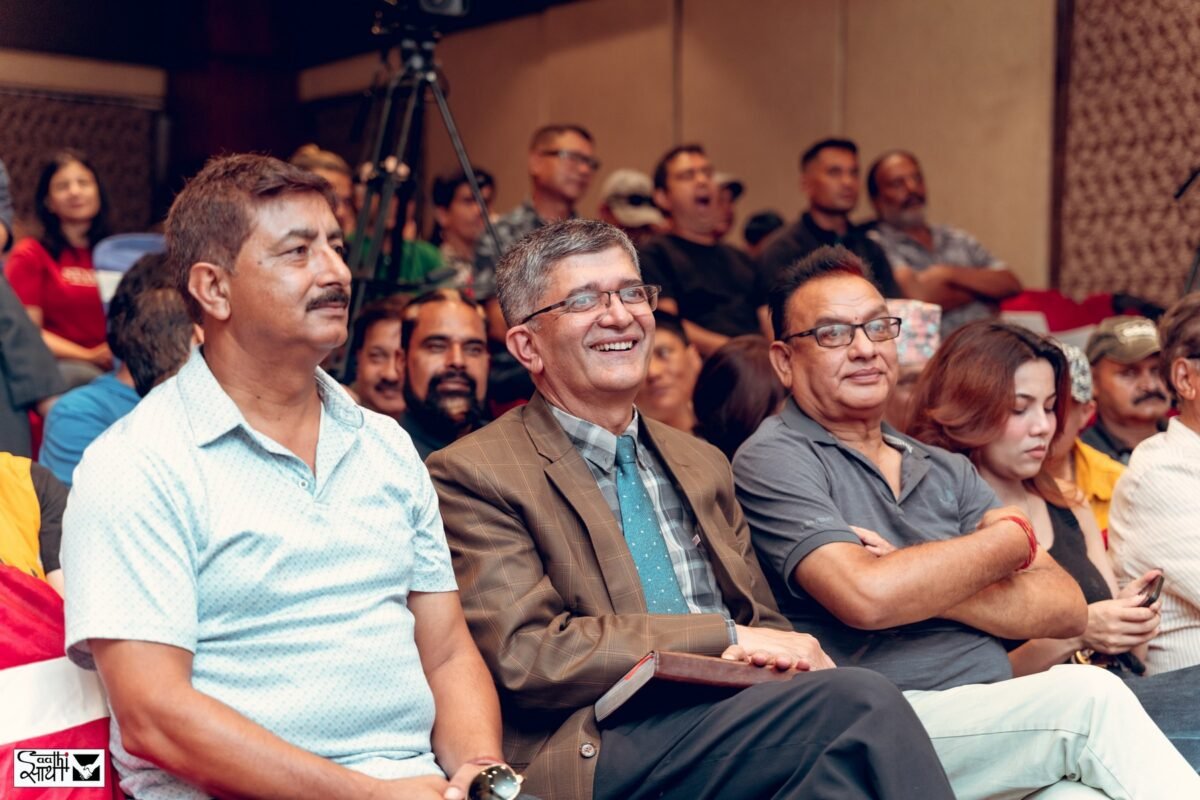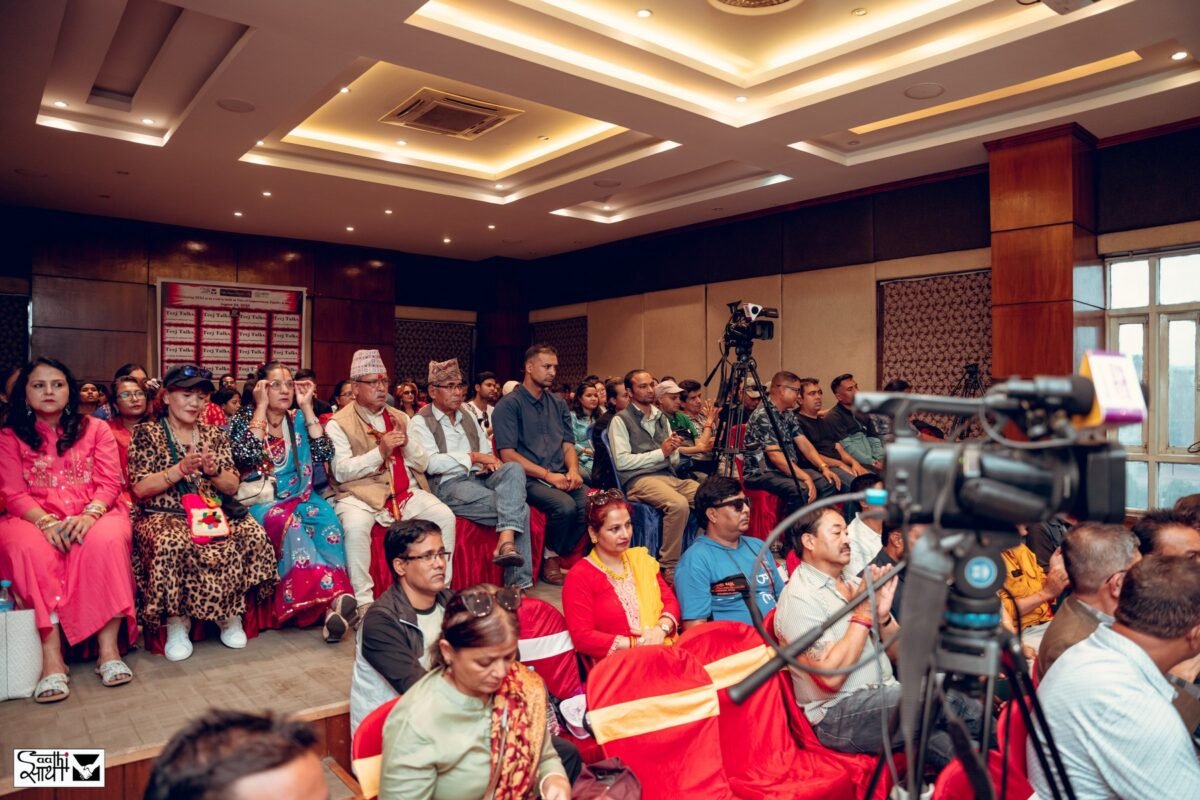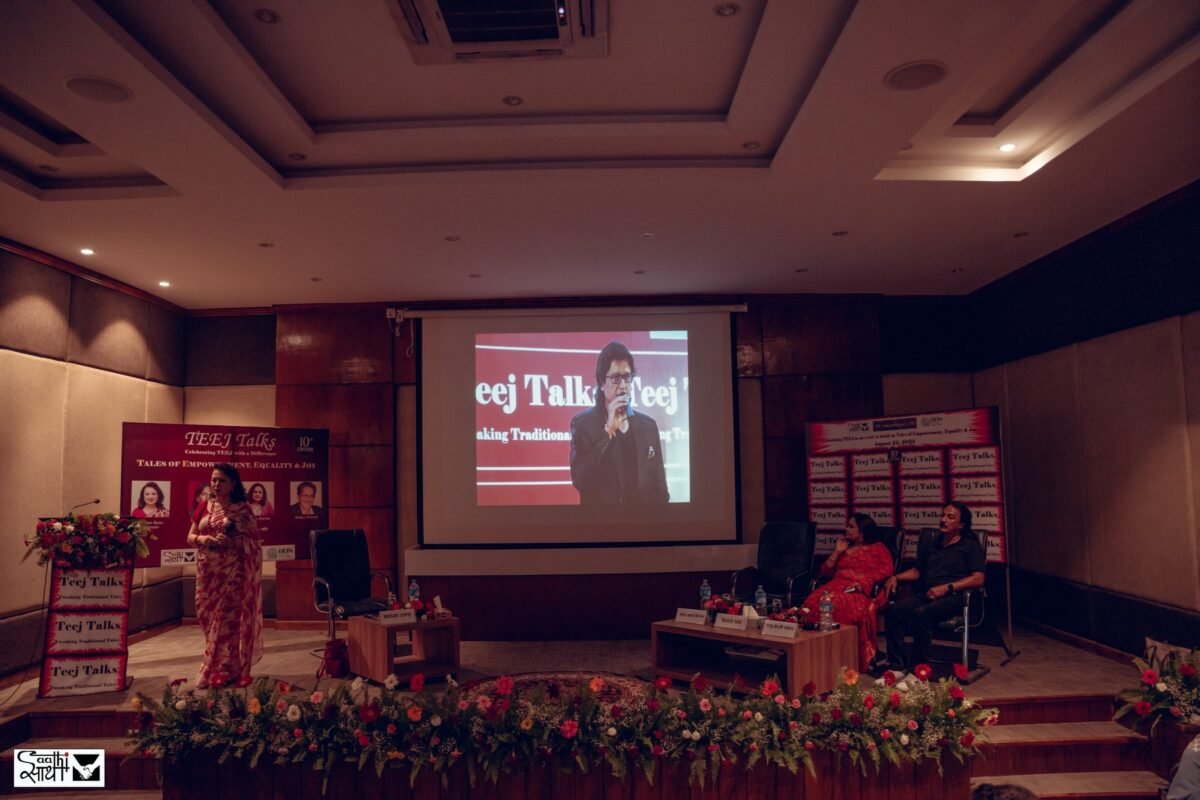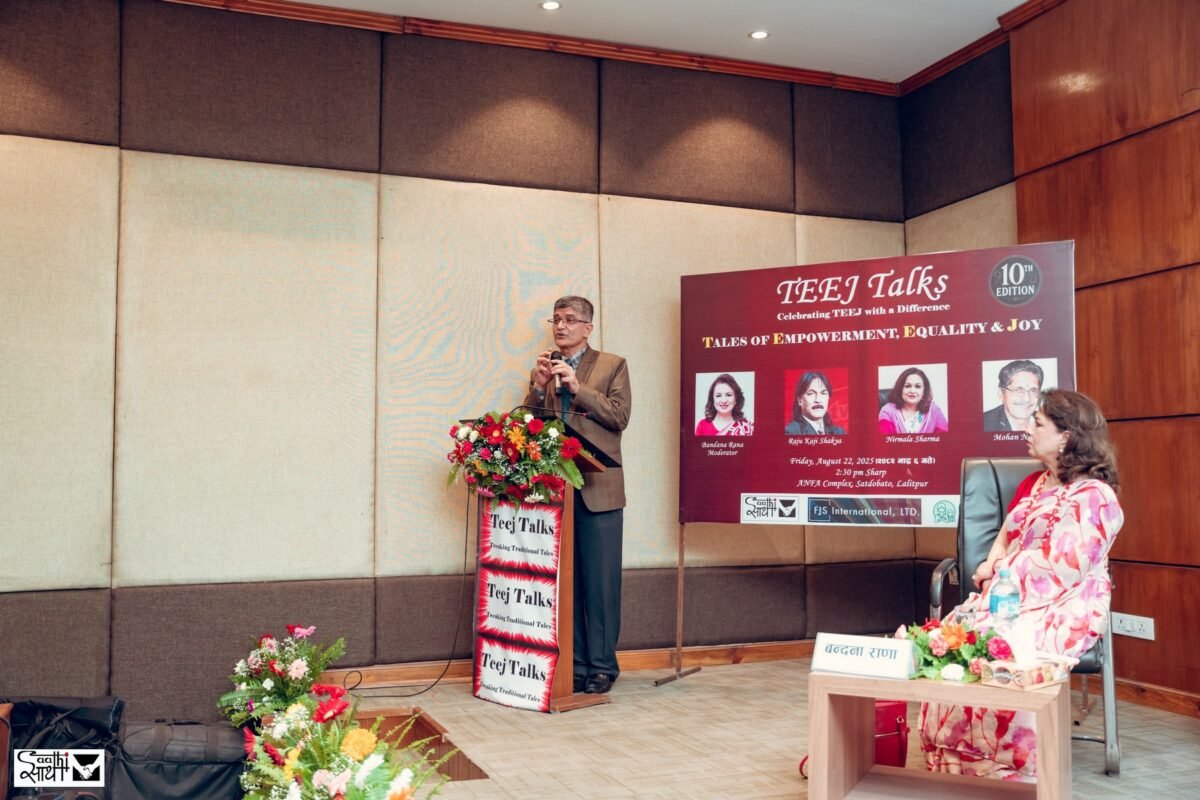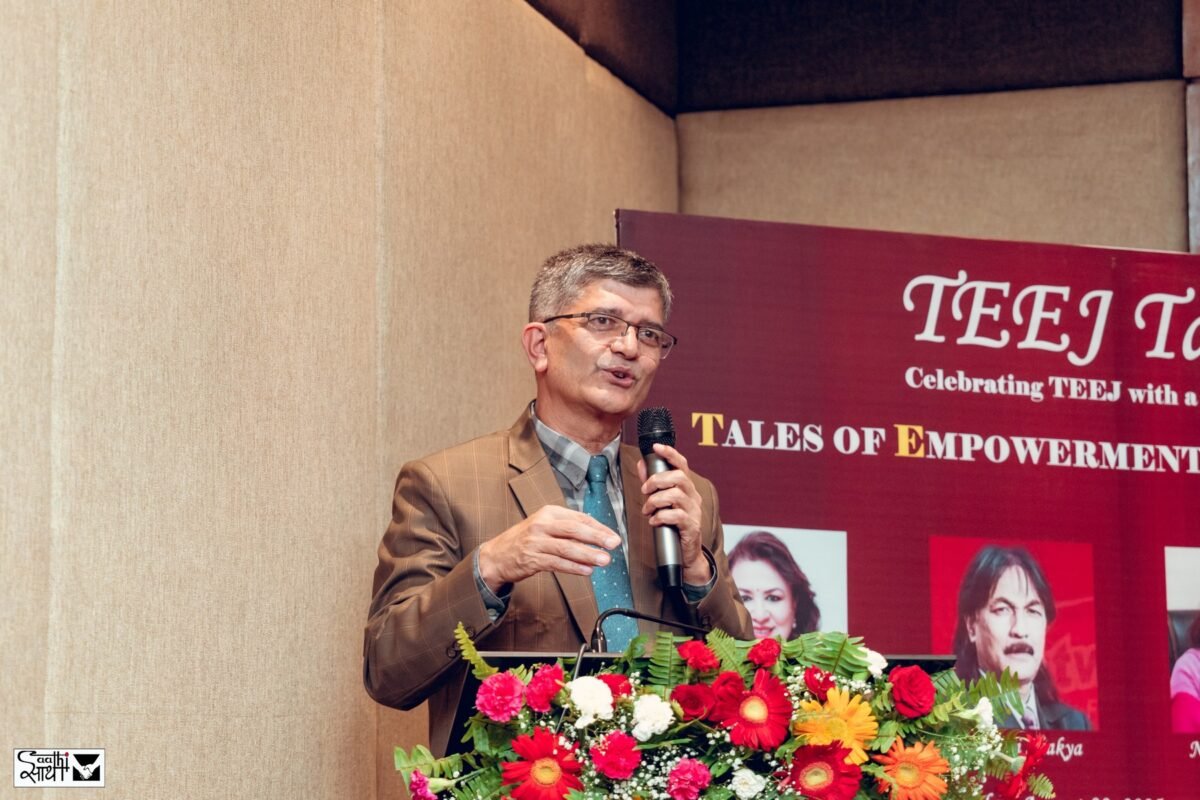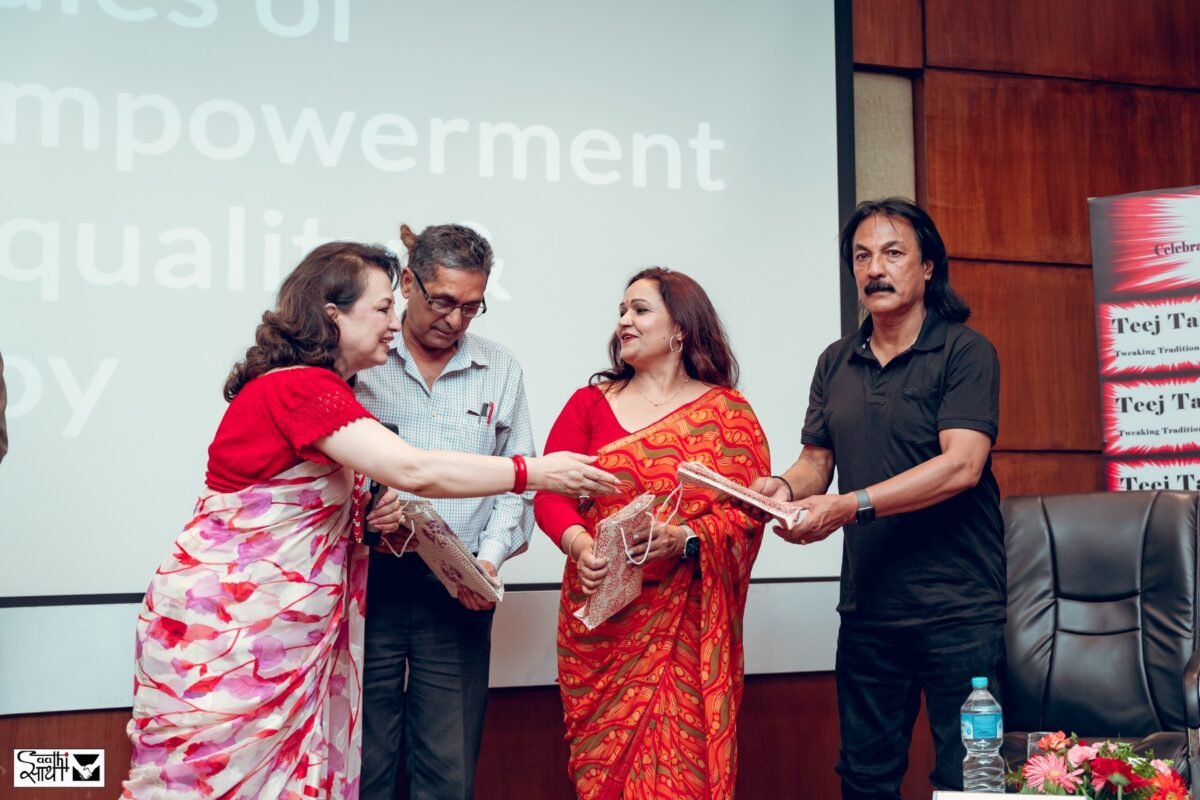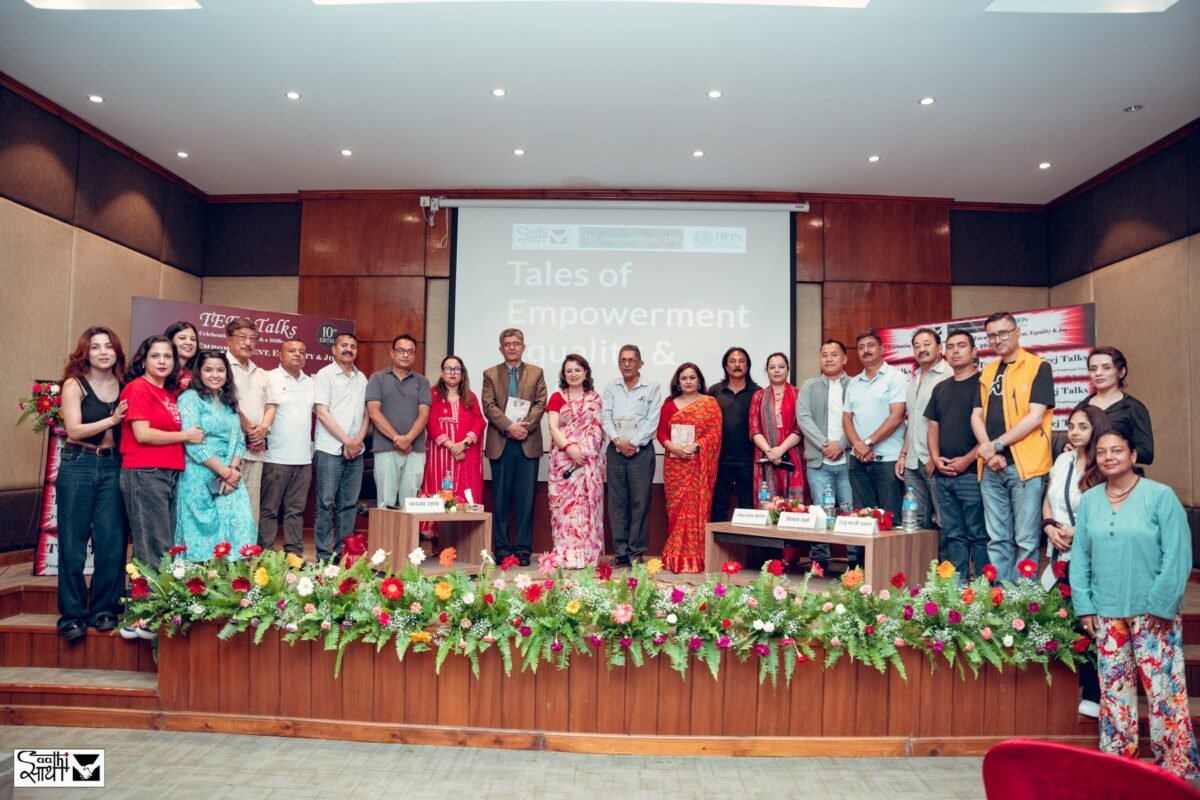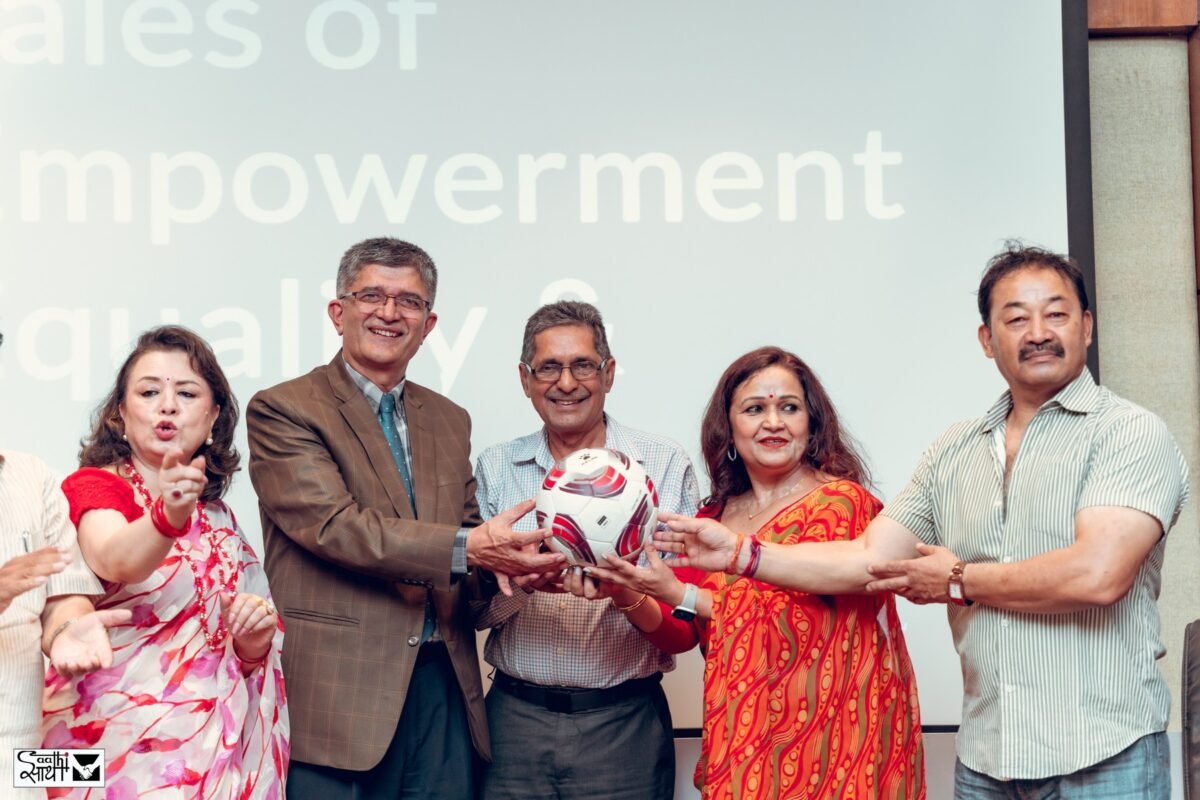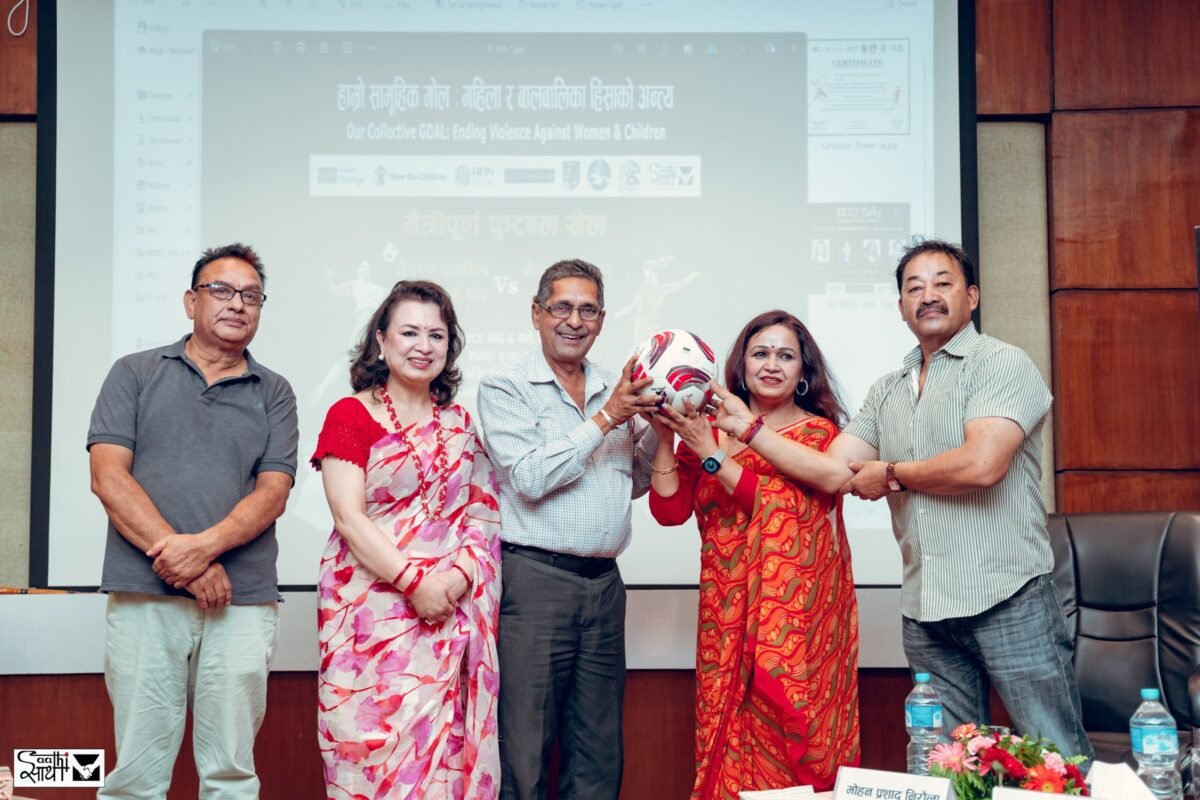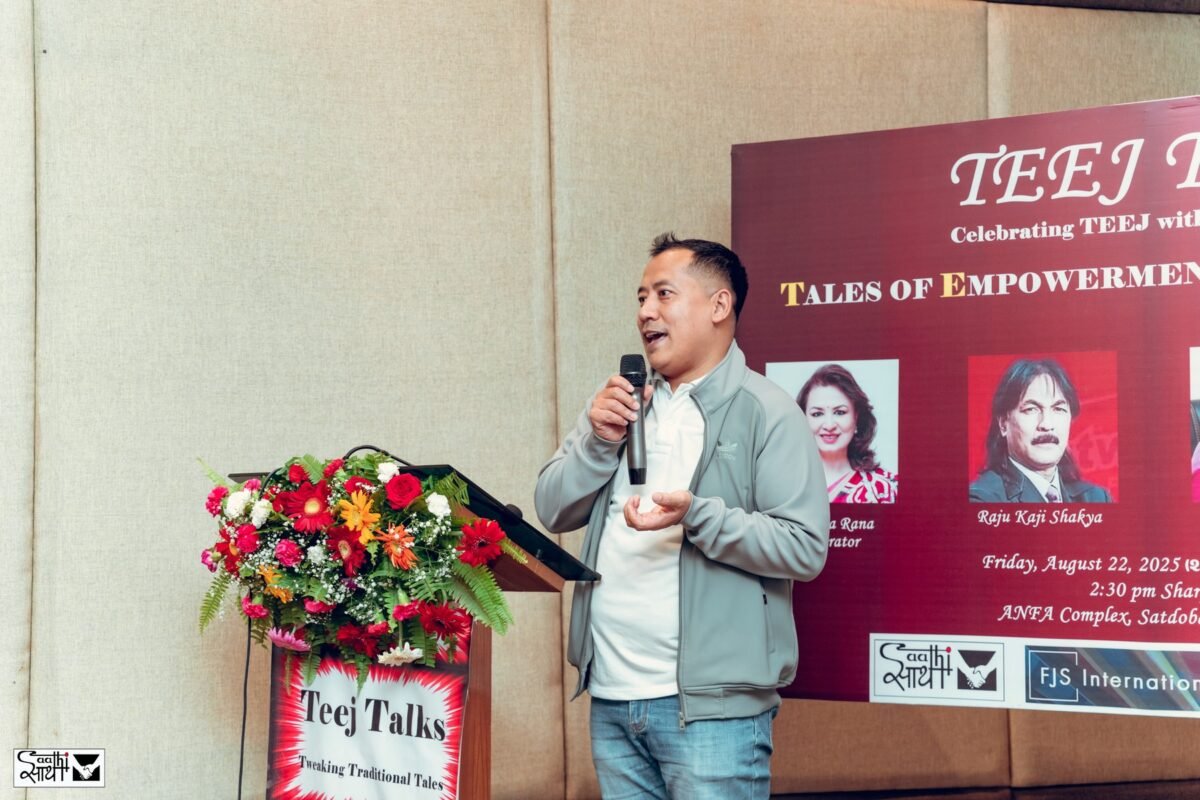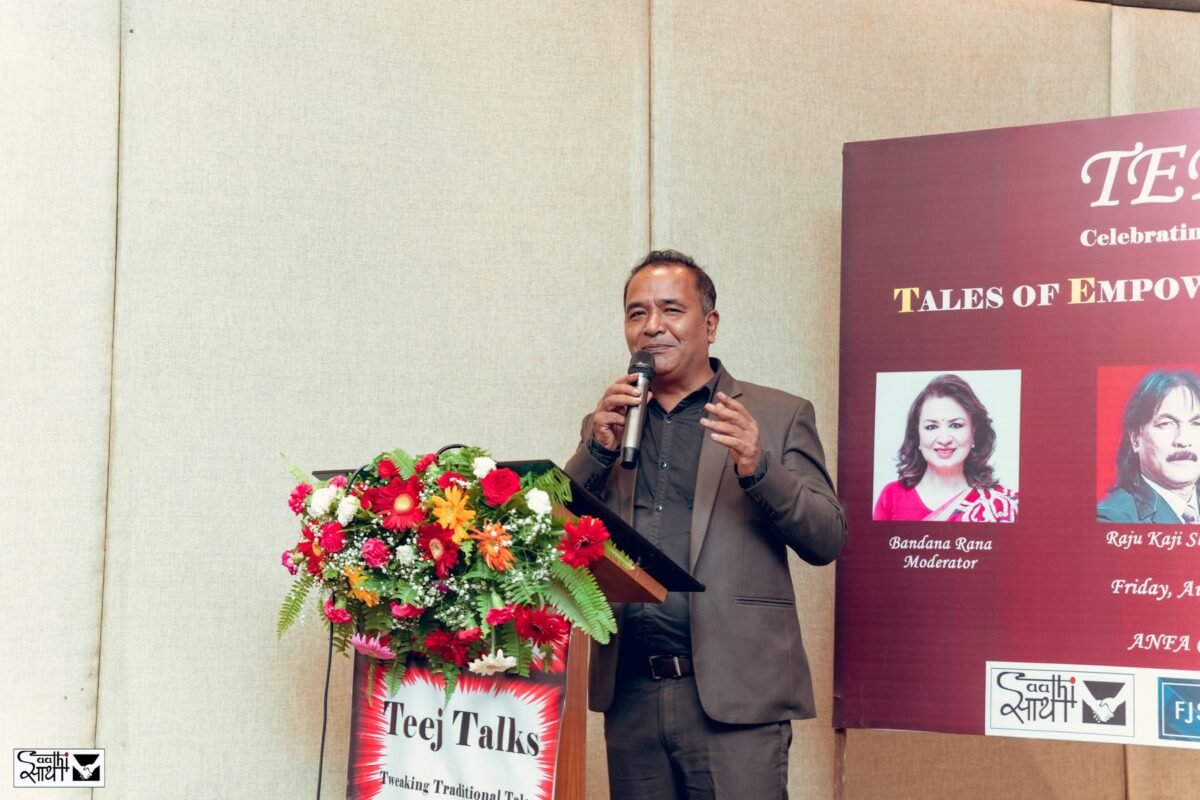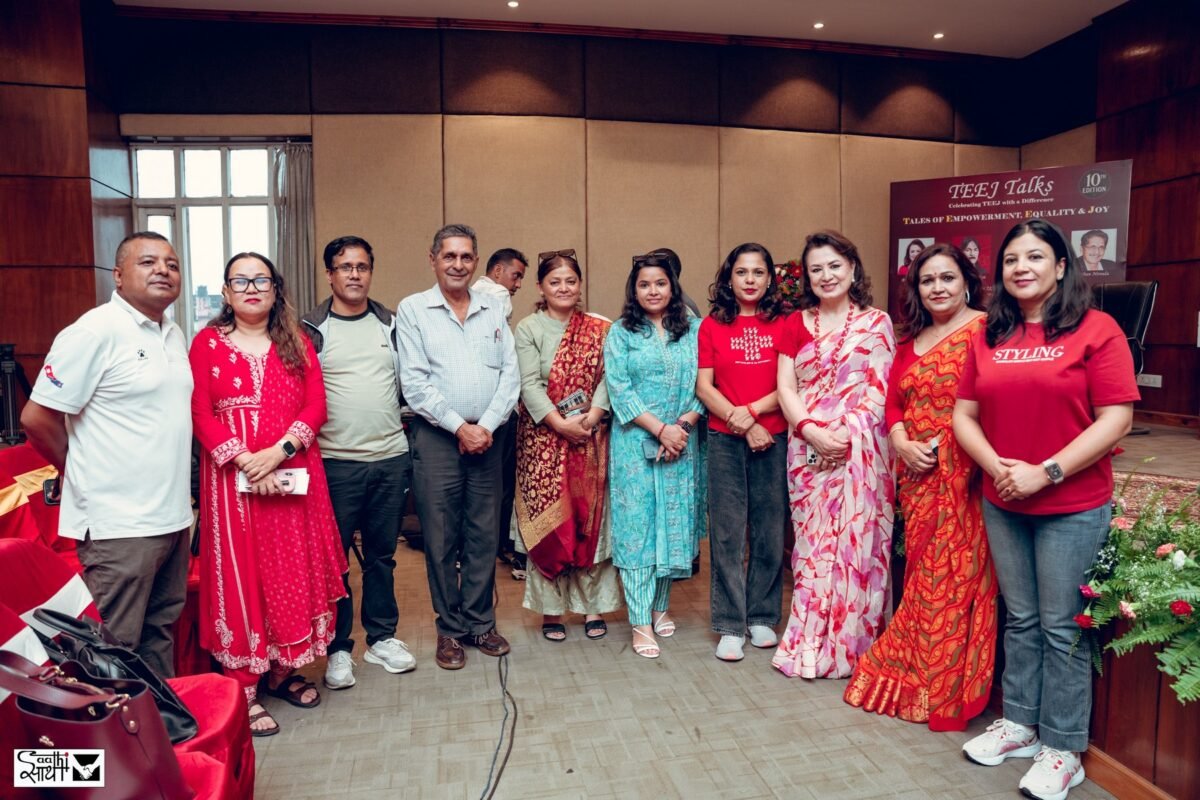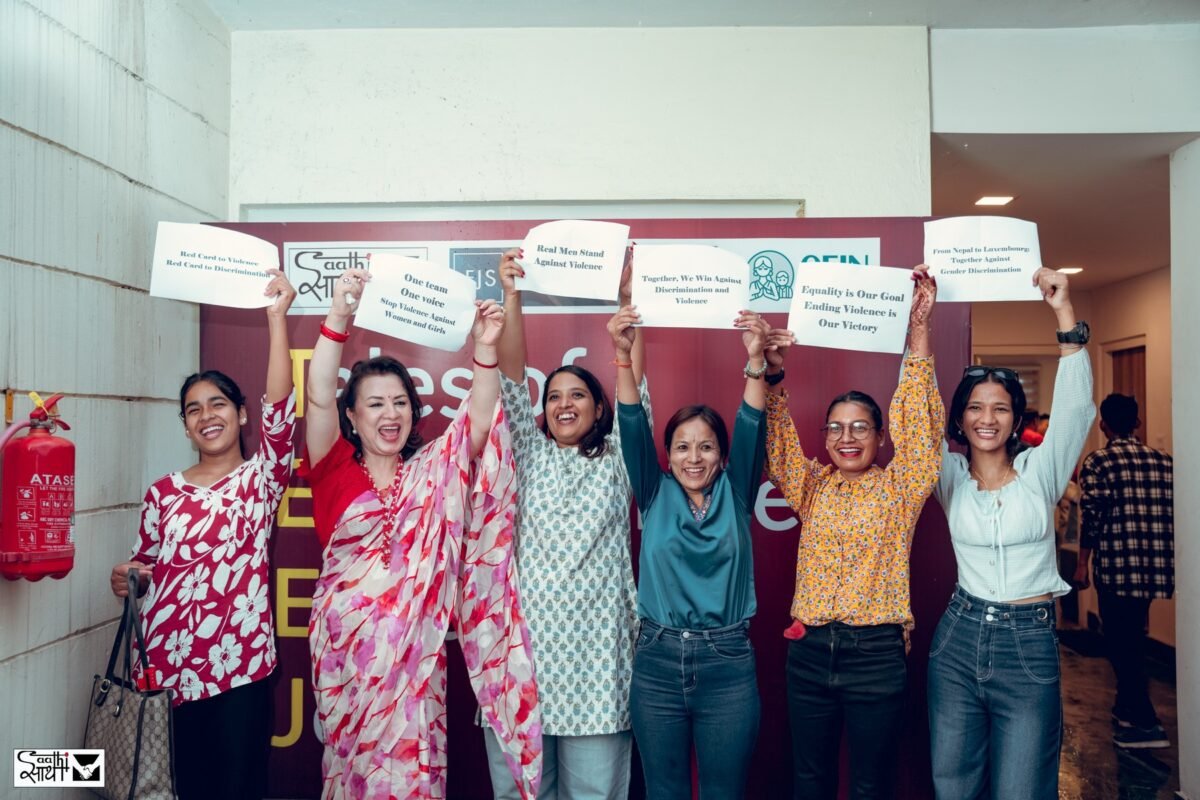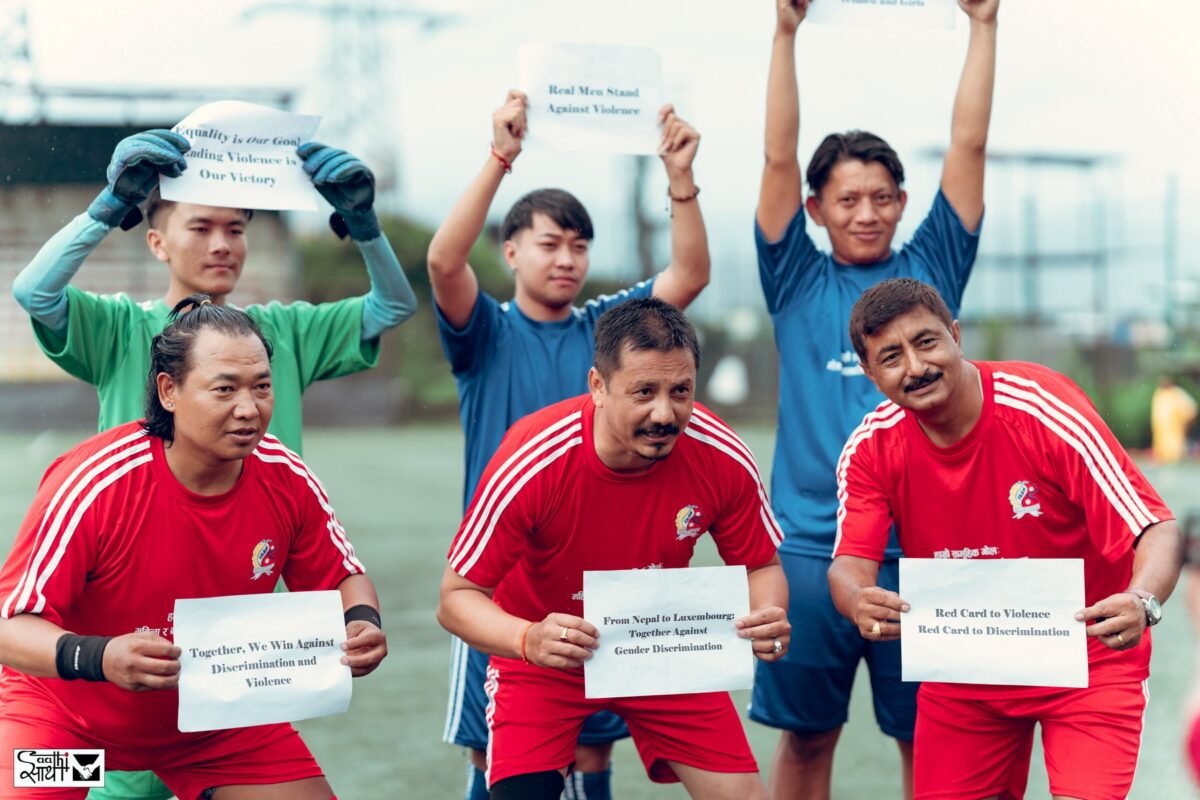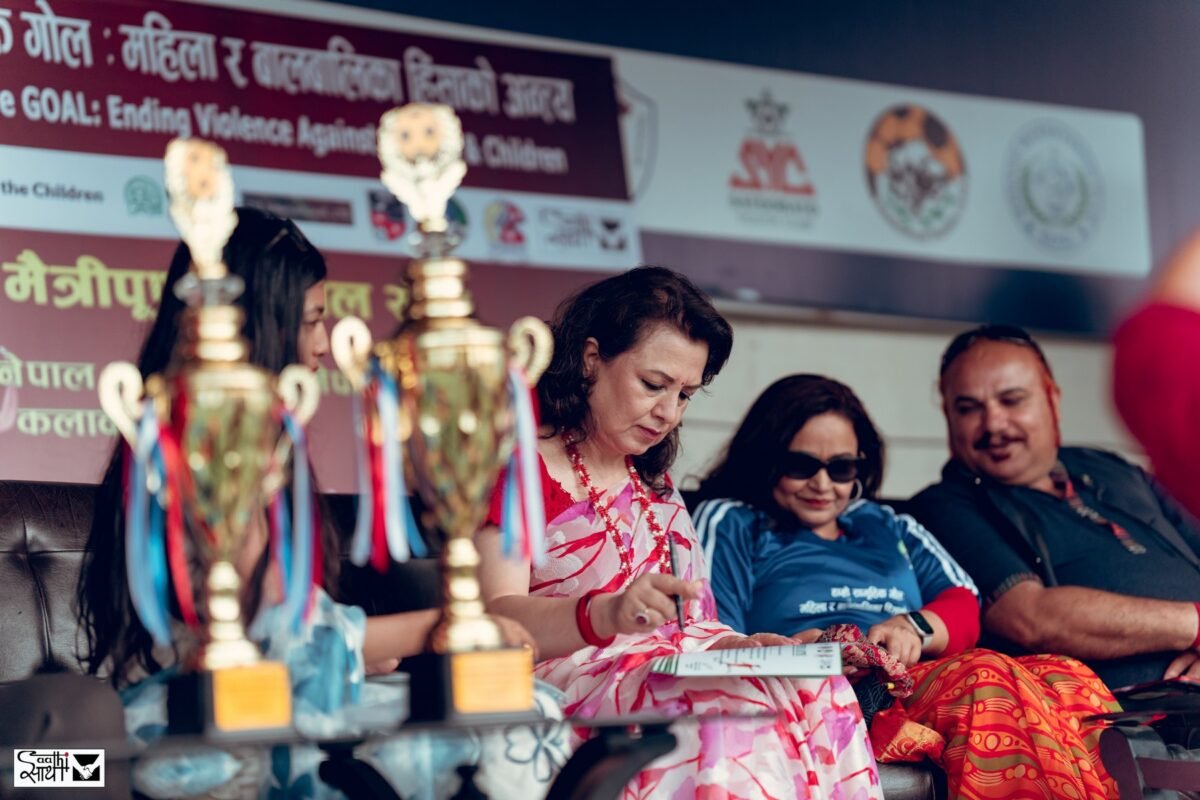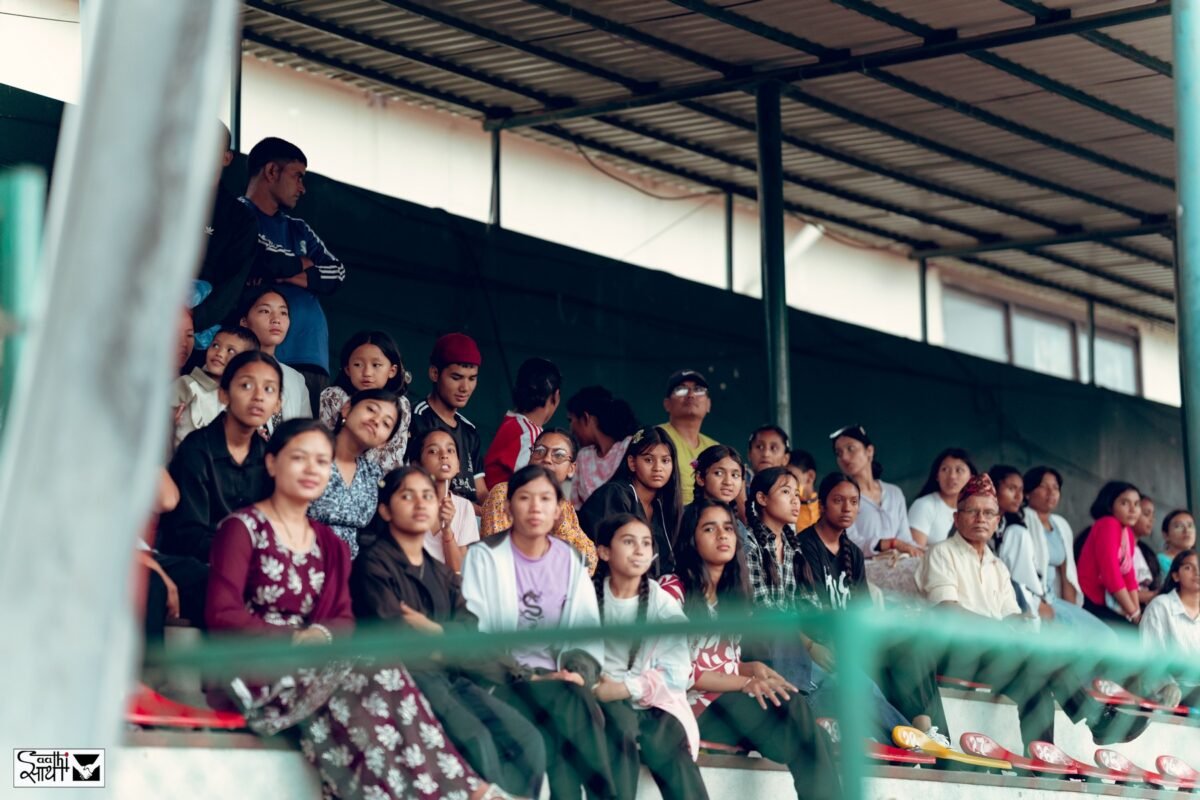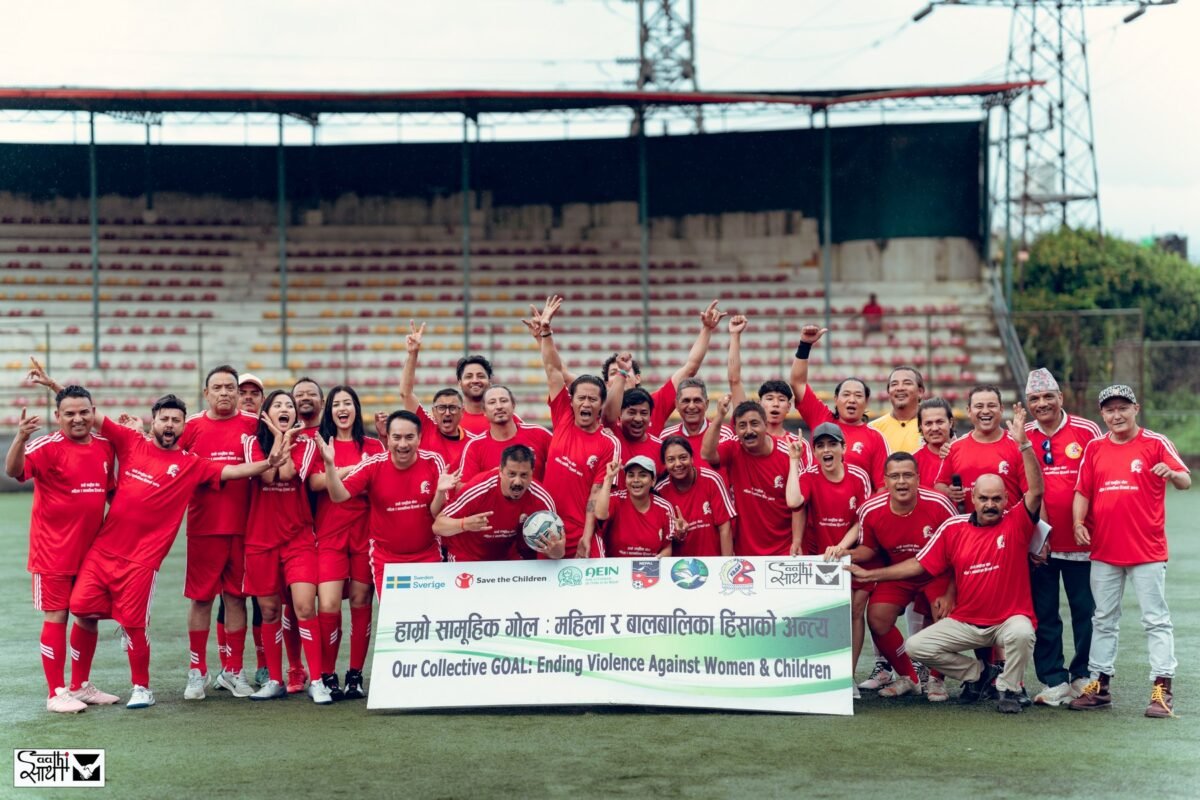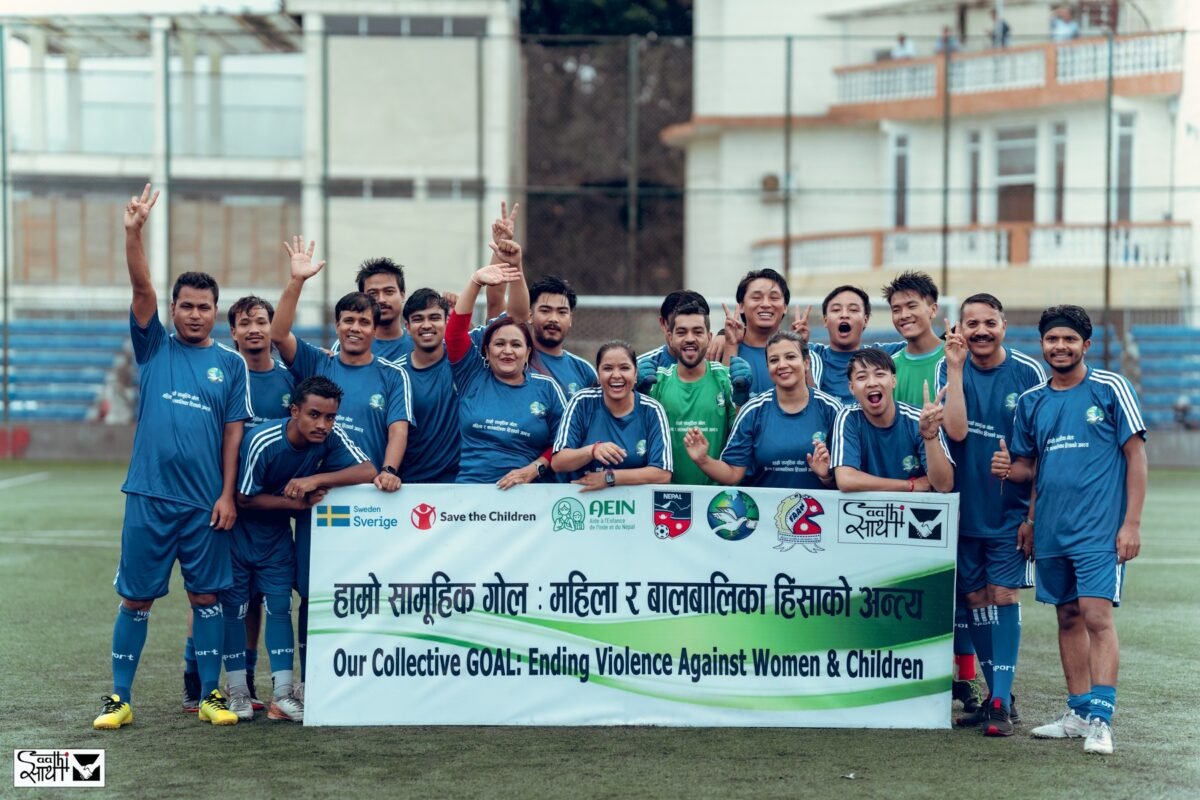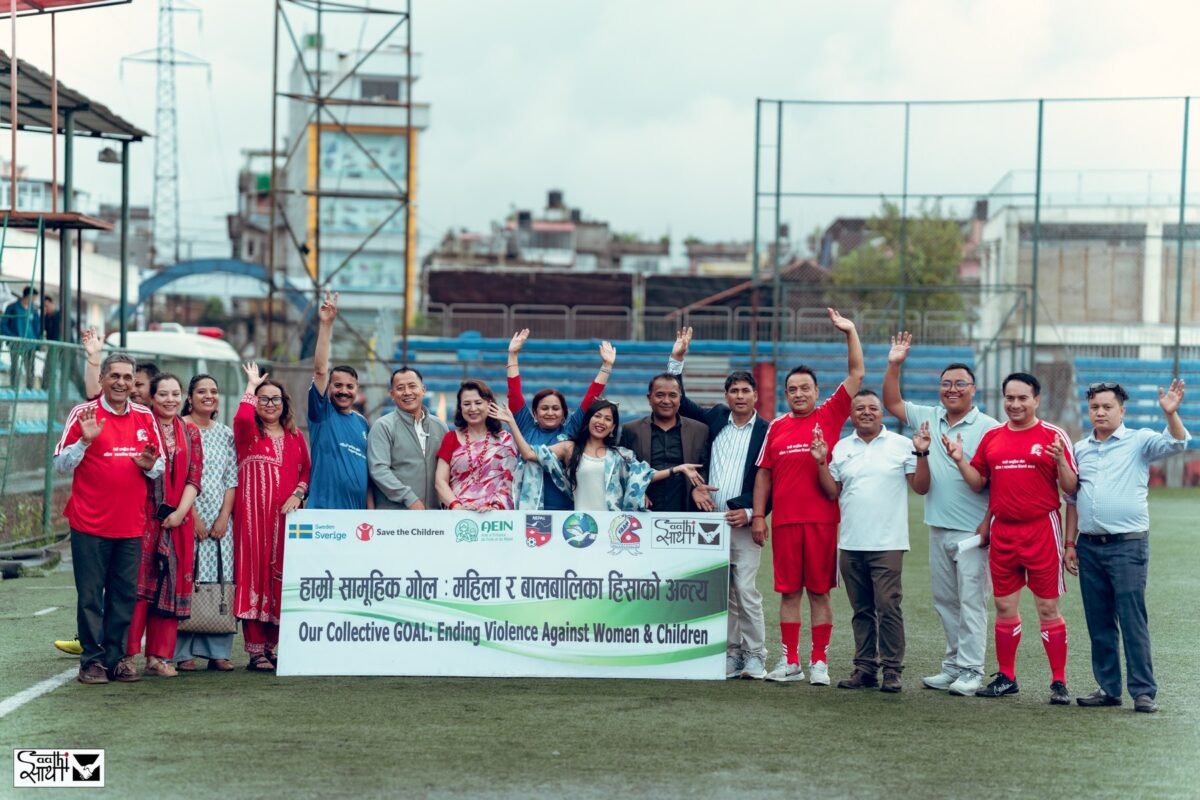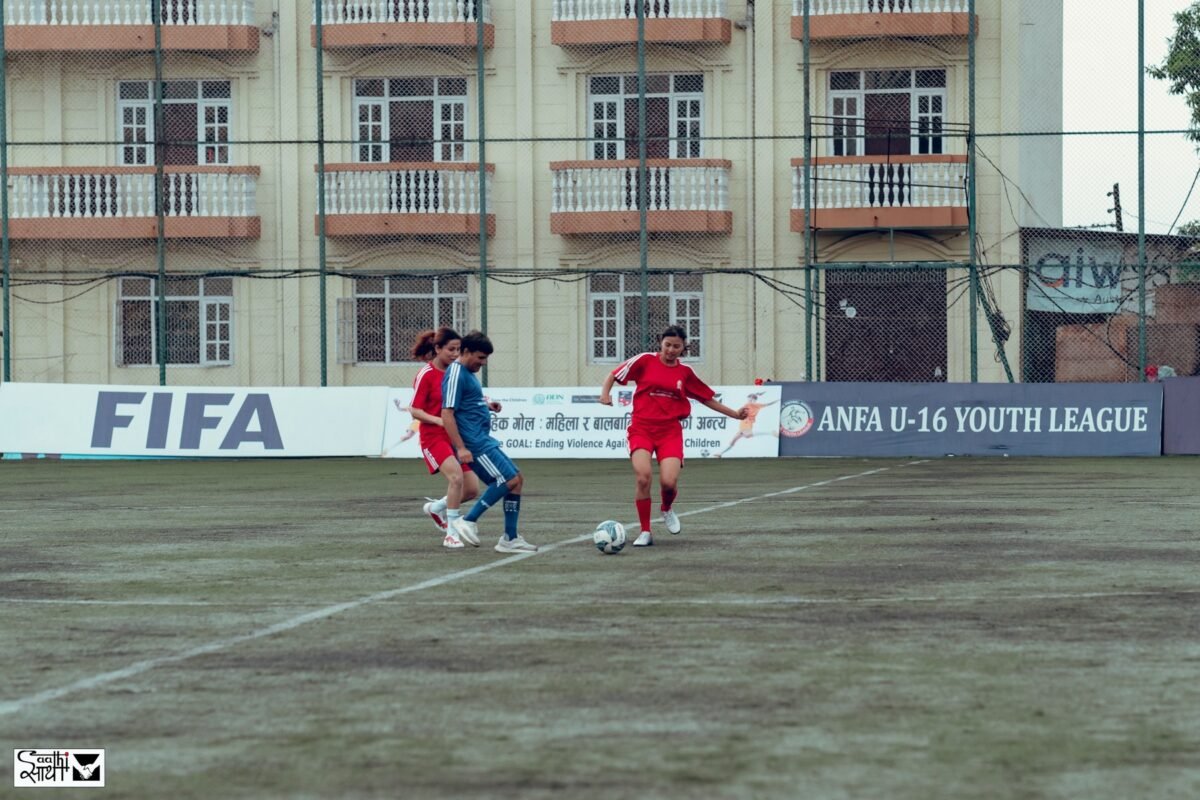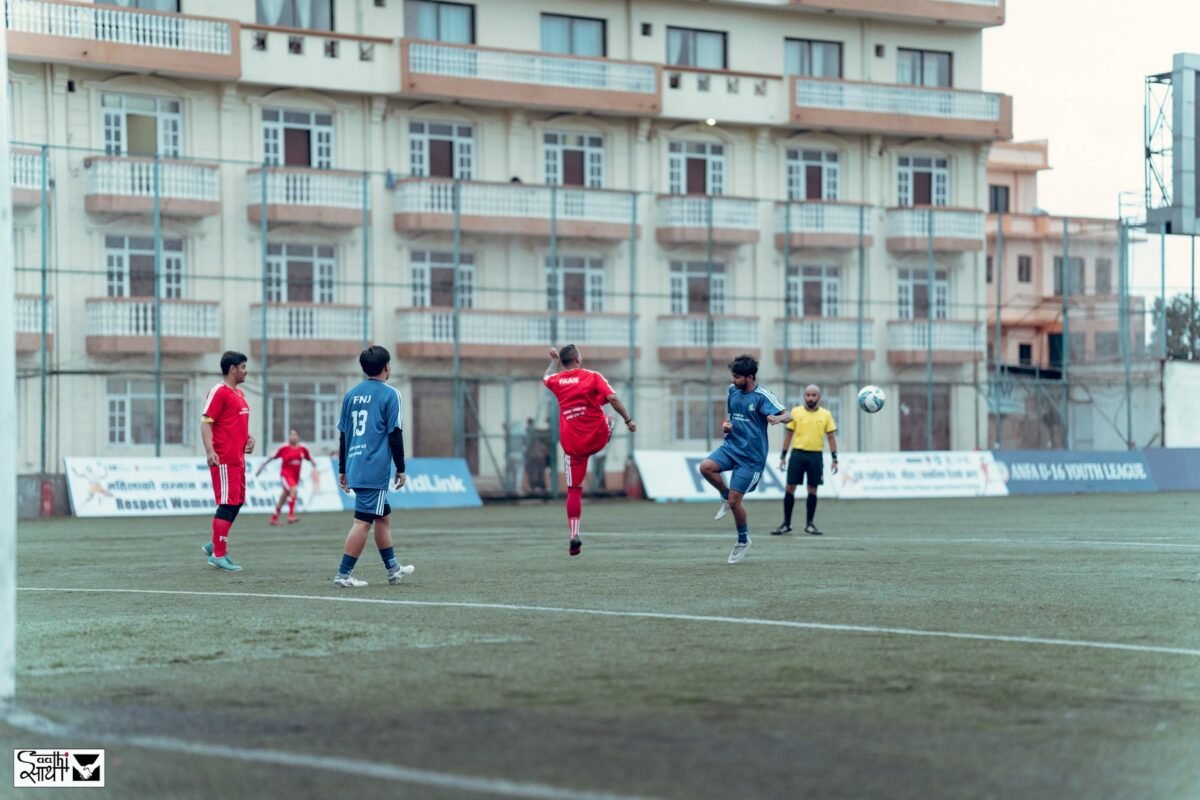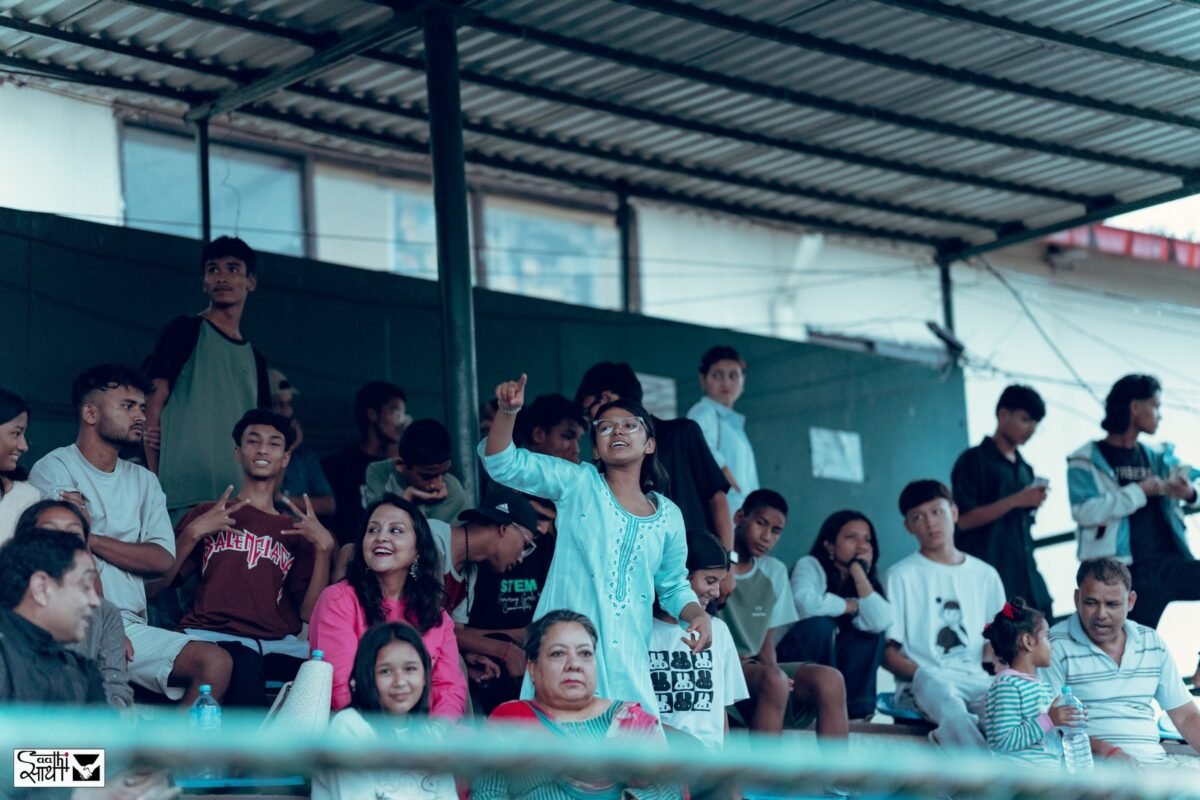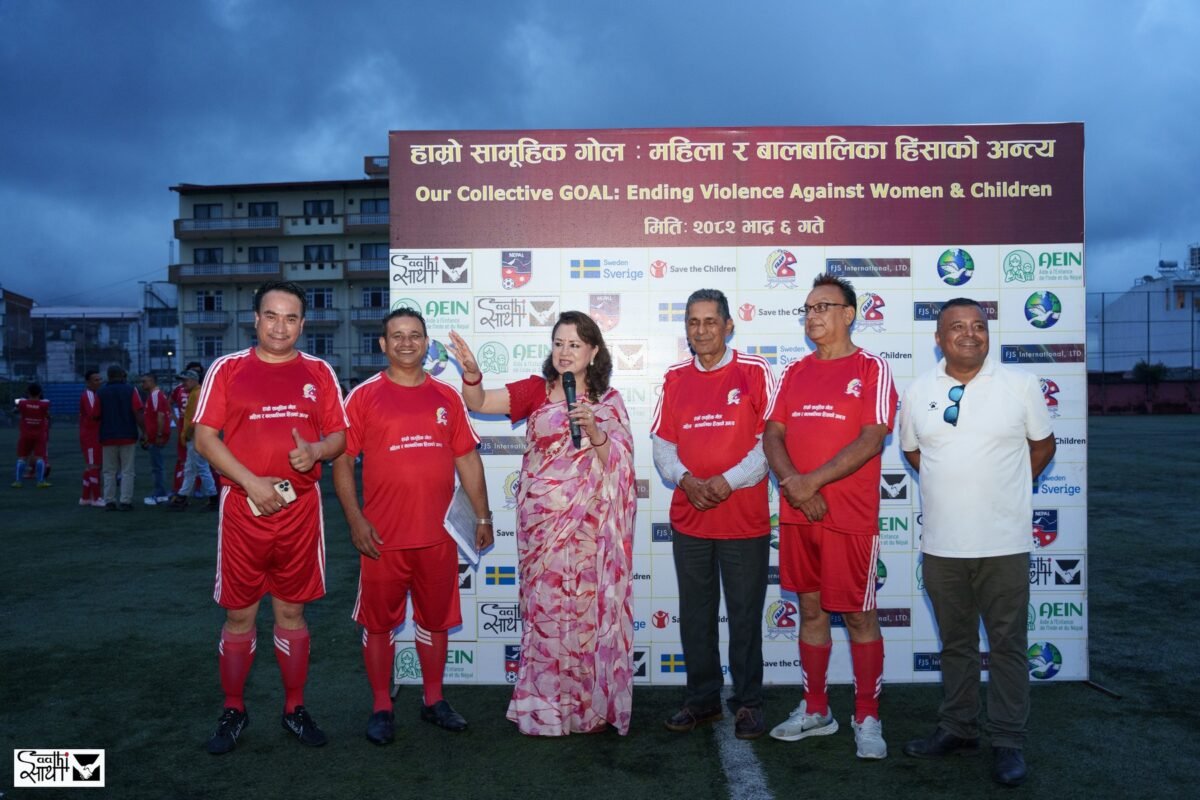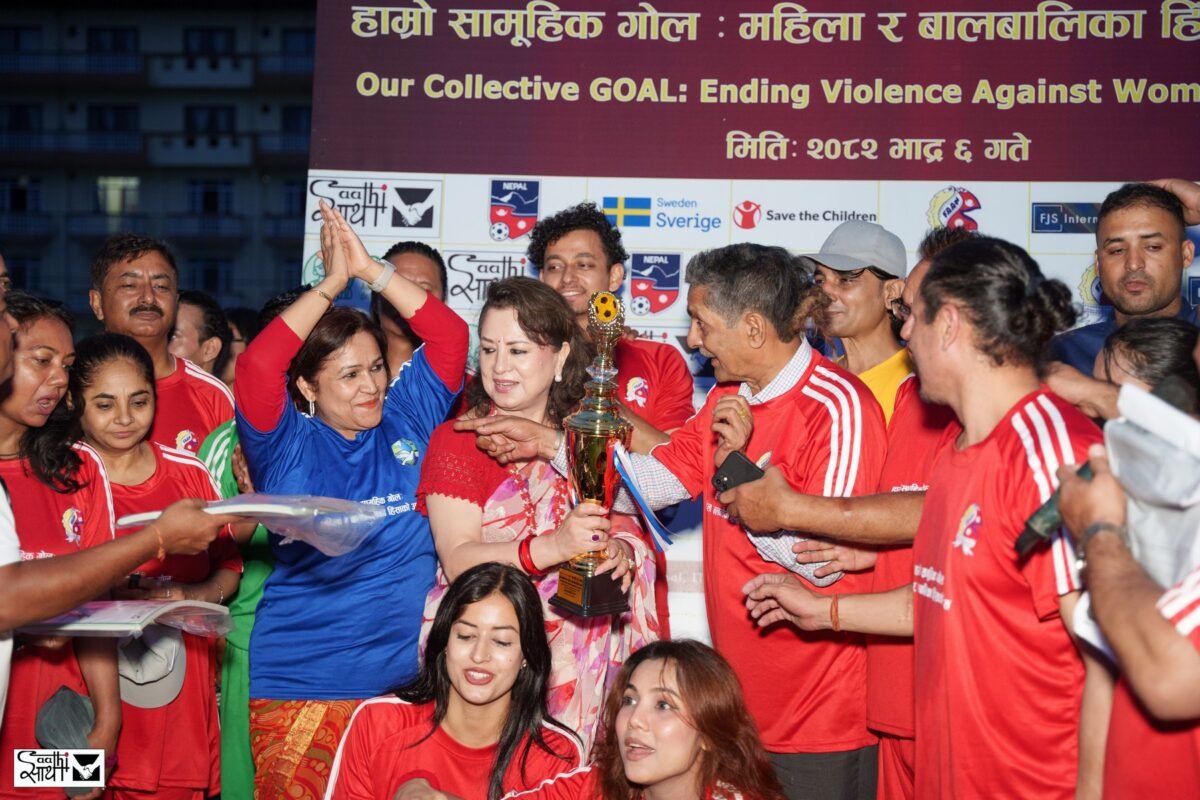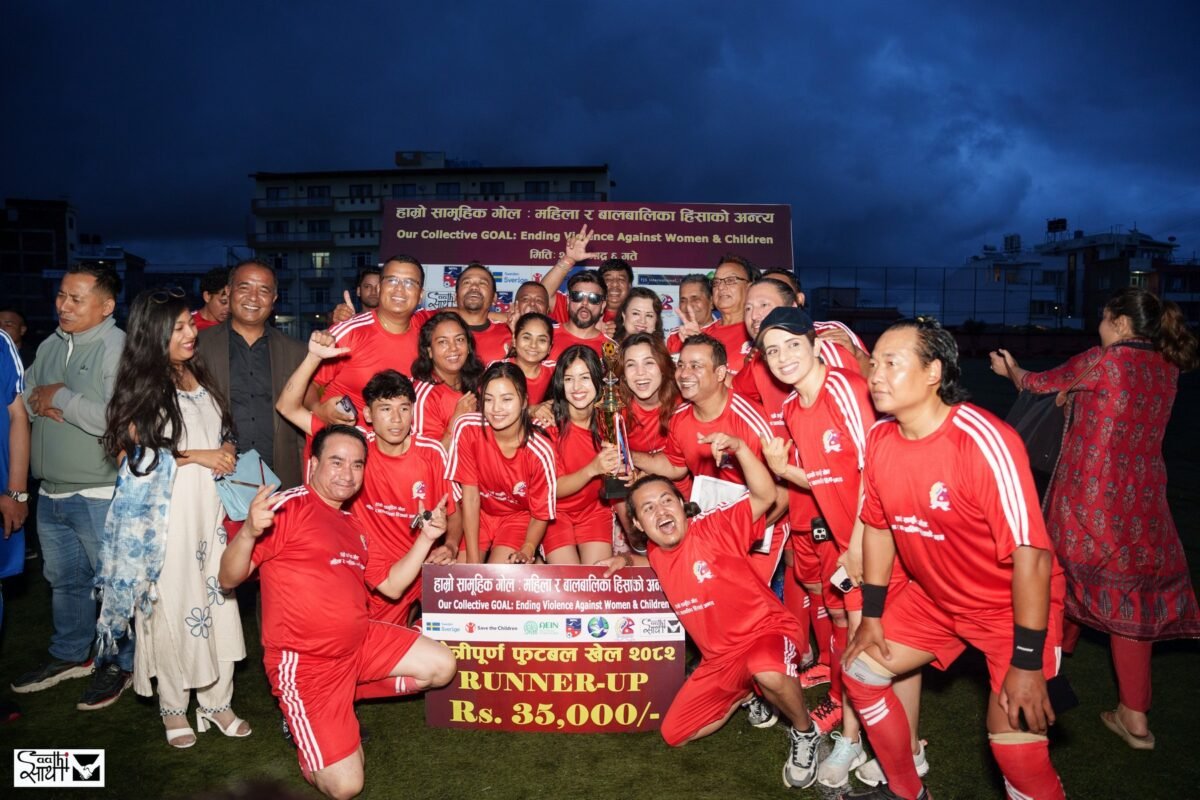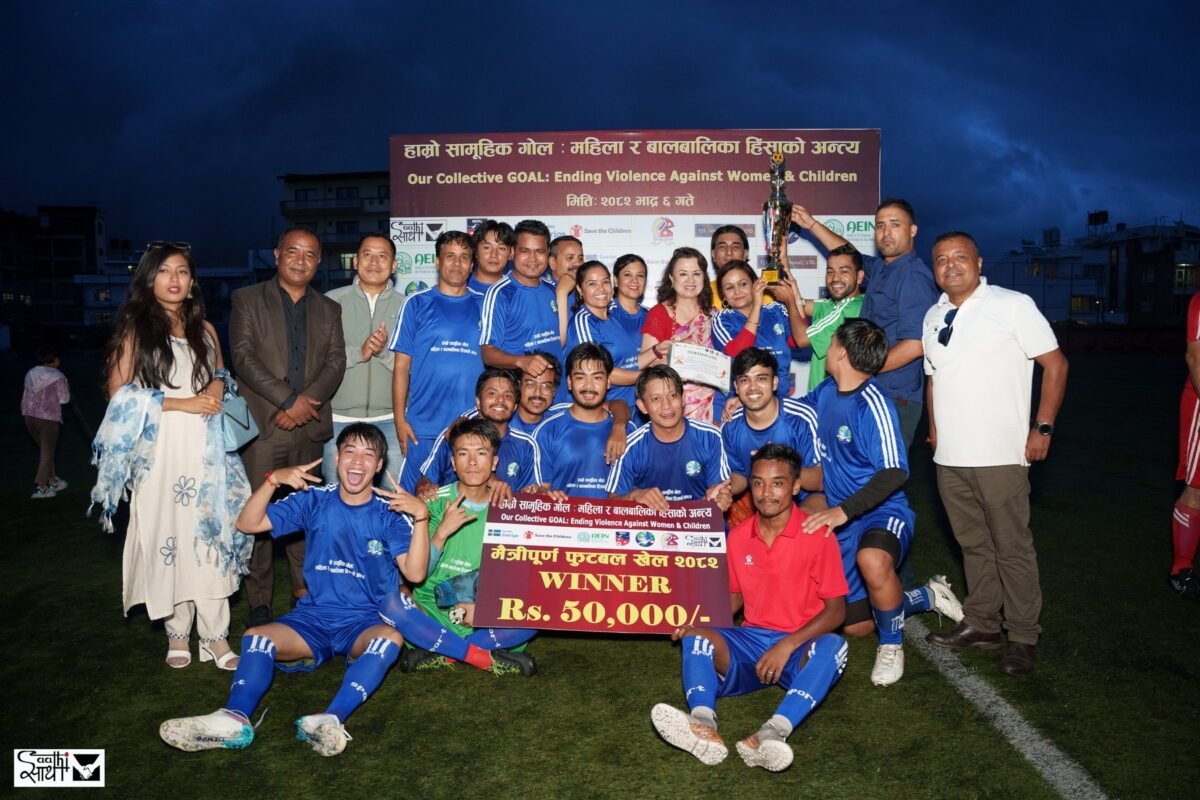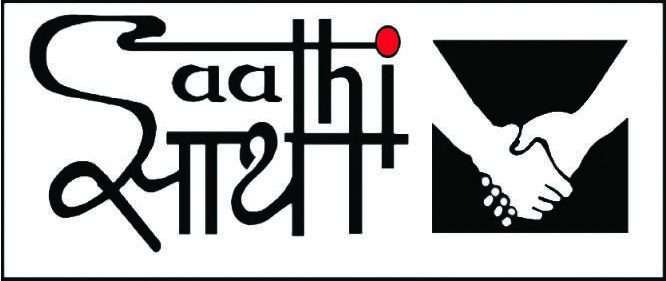Kathmandu, August 22, 2025 – Saathi’s annual flagship event TEEJ Talks marked its 10th edition this year with a powerful blend of dialogue and action, aiming to dismantle entrenched gender stereotypes in Nepali society.
Organized in collaboration with the All Nepal Football Association (ANFA), the Federation of Nepali Journalists (FNJ), and the Film Artists Association of Nepal (FAAN), the event combined critical conversations with a mixed-gender football match, symbolizing equality on and off the field.
TEEJ Talks was first envisioned by Bandana Rana, member of the UN CEDAW Committee, as a platform to reframe cultural practices like Teej through a feminist lens. Opening the program, Rana stressed that the purpose is not to discard festivals but to free them from patriarchal restrictions. She underlined that rituals such as mandatory fasting in the name of family honor undermine women’s agency. “You can observe the festival but cannot impose it on anyone against their will,” she said, urging participants to challenge blind conformity and embrace cultural traditions in ways that promote dignity, equality and joy.
Prominent figures from journalism, film, and sports shared transformative personal journeys that revealed how gendered expectations silently shape lives. FAAN Chair Mohan Niroula recalled his early career writing the pioneering TV serial Devi, which broke new ground with a female lead. At the time, he said, he had little awareness of the significance, but later realized how narratives that place women at the center can shift public sympathies and challenge stereotypes. Niroula also shared how his father, decades ago, encouraged daughters-in-law to work outside the home, a progressive step that he only came to fully appreciate later in life.
Nirmala Sharma, the first woman president of FNJ, spoke candidly about the persistence of son preference in Nepali families. During her second pregnancy, she said, societal pressure left her sleepless with fear that her second child would not be a son. When she gave birth to another daughter, the muted response of relatives underscored how discrimination is normalized. “Even my sister, who was with me at delivery, did not immediately share the news with my family back home,” she recalled. Sharma emphasized that both her daughters are thriving today, and she herself has long resisted discriminatory traditions, including refusing to observe menstrual taboos or restrict her daughters’ mobility during their periods.
Former national footballer and coach Raju Sakya reflected on how gender-sensitivity training provided by Saathi transformed sports culture, reducing sexist language and behavior among footballers. He also shared his mother’s quiet defiance of widowhood restrictions after his father’s death, recalling how she refused to wear white clothes—a move that challenged a suffocating tradition and inspired him to support her stand.
Secretary of the Ministry of Youth and Sports, Dr. Hari Lamsal, reminded the audience that symbolic gestures are not enough. “Instead of just destroying chhaupadi huts, we need to destroy the chhaupadi mindset that lives in our society,” he said, pointing to the urgent need for deeper change at the level of attitudes and beliefs.
The event concluded with a friendly football match between FNJ and FAAN, where male and female players teamed up to demonstrate inclusion in practice. Unlike conventional games defined by winners and losers, both teams declared victory in spreading the message of equality. Saathi and ANFA’s long-term partnership under the slogan “Our Collective Goal: Ending Violence Against Women and Children” continues to mobilize footballers, especially popular male athletes, to use their influence in challenging gender-based violence and promoting equality.
